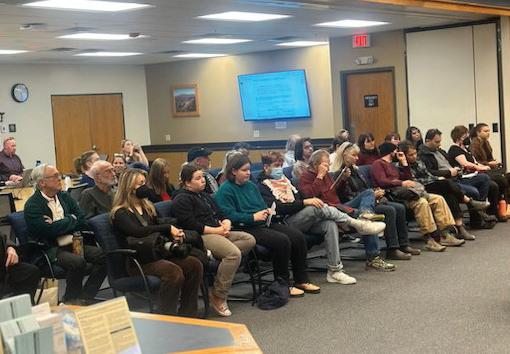
CALLERS TO COUNCIL MEETING SPEW HATE
Callers to a Flagstaff City Council meeting went on racist screeds and hurled antisemitic slurs
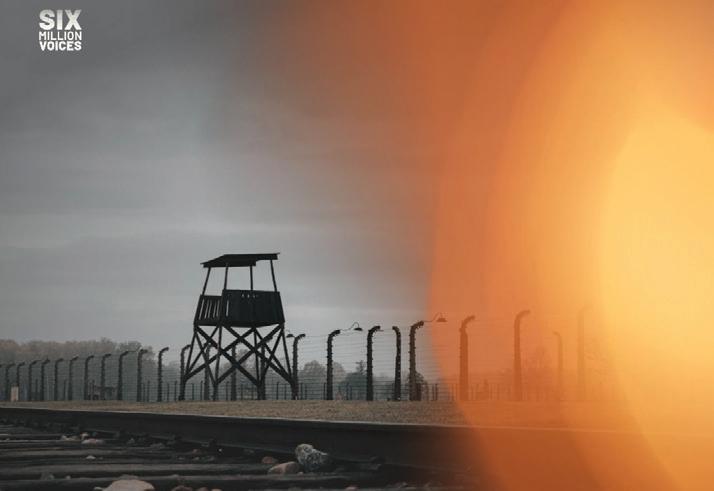
Takis, Oreos, Skittles and more:
OU experts respond to Arizona’s kosher questions
SHANNON LEVITT | STAFF WRITER
Trader Joe’s chili and lime-flavored rolled corn tortilla chips likely got a sales boost in 2022 after Jew-Tok (@.jewtok), a popular purveyor of young Orthodox Jewish culture on the social media site TikTok, released a video of college-aged influencer Avichai Cohen explaining why the chips are a good kosher substitute for Takis, a beloved campus snack that is not certified kosher.
After reading the ingredient list on a Takis’ bag, which Cohen likes “because the smell is amazing,” the young influencer discovered that the Trader Joe’s chips had the same ingredients with the added benefit of being kosher. He took a chip from the bag and, after saying a blessing, took a bite and declared, “Wow! Those are good!”
Cohen pointed to a symbol on the front of the bag, a capital letter “U” inside an “O,” which denotes the product is certified kosher by the Orthodox Union (OU). Below the video are several questions and back-and-forth discussions from followers about what is and isn’t kosher and why.
That video has more than 200,000 likes, and while some people might chuckle at the idea of hordes of young people wandering into the weeds of kosher certification and its vicissitudes, it’s not at all surprising to more than a few Orthodox teens (and probably adults) in Greater Phoenix, as evidenced by the questions they had for OU Kosher rabbis who were in Arizona last month to provide kosher education to the local Jewish community.
Laili Schnitzer, Phoenix director for Arizona NCSY (OU’s youth organization) and Jewish Student Union (its public school counterpart), took about a dozen enthusiastic teens
Arizona legislators take a quick trip to Israel ‘to make up their own minds’
Earlier this month, 17 Arizona state representatives, seven Democrats and 10 Republicans, went to Israel to meet with Israeli business, military and political leaders; learn about Israeli society; and speak with witnesses of the Oct. 7

Hamas attack on Israel, including family members of hostages still in Gaza.
Rep. Alma Hernandez (D-20), Tucson’s outspoken Jewish Latina legislator and trip leader, saw the journey as a unique and important experience, one that allowed many of her colleagues a first glimpse of Israel and its people.
“I wanted people with different points of view to come, see the country for themselves and be able to ask their own questions,” she told Jewish News.
Hernandez has been involved in Israel advocacy since she was 14; even her car’s personalized license plate reads “Zionist” in all caps. She has never shied away from her activism on behalf of the State of Israel but was frustrated by some critics of the trip who accused her of using it as a chance for “propaganda or brainwashing.”
“Everyone has the right to their own opinion,” she said. “At the end of the day, education was the purpose of the trip. If anything, we should be glad people want to learn about a topic they don’t know about and a lot of elected politicians don’t know that much about Israel.”
Rep. Seth Blattman (D-23), who is Jewish and has been to Israel “twice before but never during a war,” saw the trip as “an opportunity to see the situation firsthand and educate myself on what’s happening on the ground,” he told Jewish News in a text.
Daniel Hernandez, Alma’s brother and a former Arizona representative, proposed the March 5-11 trip, helped organize it and went along. Itrek, an organization that sends up-and-coming business SEE TRIP, PAGE 3

‘Fierce’ Phoenix senior
Susan Brooks challenges others to be brave and embrace awe. See page 13.
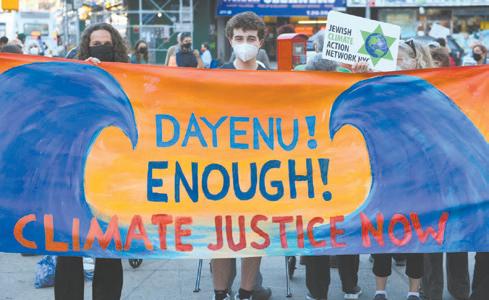
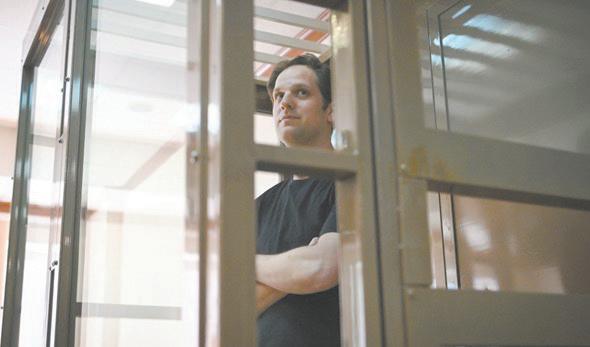

CHARITABLE GIVING | 10
EVJCC launches global nonprofit and immersive Holocaust education initiative APRIL 5, 2024 | ADAR II 26, 5784 | VOLUME 76, NUMBER 15 $1.50 HEADLINES | 6
SIX MILLION VOICES
On the first anniversary of Evan Gershkovich’s arrest, Biden says his detention will ‘cost’ Russia Michigan congressman says he wasn’t advising nuclear war after telling Israel to approach Gaza ‘like Nagasaki and Hiroshima’ In a first, Oregon’s Jewish federations pull investments from fossil fuels NATIONAL INTERNATIONAL KEEP YOUR EYE ON jewishaz.com
SHANNON LEVITT | STAFF WRITER
KOSHER,
ISRAEL
PHOTO COURTESY OF SUSAN BROOKS
SEE
PAGE 2
A group of Arizona legislators went to Israel in March. COURTESY OF ARIZONA HOUSE OF REPRESENTATIVES
to meet with the rabbis. One of the first questions was about Takis vs. Trader Joe’s corn chips.
OU Kosher Rabbinic Coordinator
Rabbi Eli Eleff was not at all surprised. He explained that a brand might not seek OU’s kosher certification for various reasons — money, lack of equipment or manpower, etc. One big reason is simply that a company might not be aware of the value of a kosher certification. He told the kids that they had power as consumers and should “call up Takis and ask for it.” Certain companies have let their certification go only to renew it after hundreds of customers called to request it.
Rabbi Yisroel Isaacs, Phoenix’s Beth Joseph Congregation’s senior rabbi and director of the Greater Phoenix Vaad Hakashruth, invited Eleff and his colleagues, Rabbi Moshe Elefant, OU Kosher’s COO and Rabbi Chaim Goldberg, OU Kosher rabbinic coordinator, to educate the Greater Phoenix Jewish community about their work and the processes involved. Chabad of Arizona and Arizona Kosher co-sponsored the Beth Joseph event, “Backstage with OU Kosher,” on Wednesday, Feb. 21. About 130 people turned out for the program and attendees represented various levels of kosher adherence, Isaacs told Jewish News.
“It was an amazing event that exceeded my expectations. It was informative, entertaining, fun and it appealed to a broad audience with different interests,” Isaacs said.
Over the last decade, the local Vaad has developed a close working relationship with OU, not only as professional advisors for the Vaad’s kosher supervision work, but Isaacs and his colleagues also assist the OU in managing supervision in different facilities around the state that certify things as kosher, he said. Isaacs was at the OU headquarters in New York a few months ago to coordinate and collaborate with various
said Jon Meyers, director of ADDPC.
“Our hope is to create and promote opportunities for people to be embraced, become part of the community and find equitable opportunities wherever they might live,” he said.
about her Judaism with her fellow council members and speaking out for her rights and beliefs.
She already has some practice at advocating for herself.

Meyers first came to know Stern through her mother, Amy Silverman, who read her personal essays about raising a daughter with Down syndrome on KJZZ, National Public Radio’s Phoenix affiliate station.
“One time, I was in class and someone called me the R-word and I told him not to. The teacher was in the hallway and another student repeated the word,” she said. Rather than letting the situation go, she told her theater teacher, who was able to intervene.

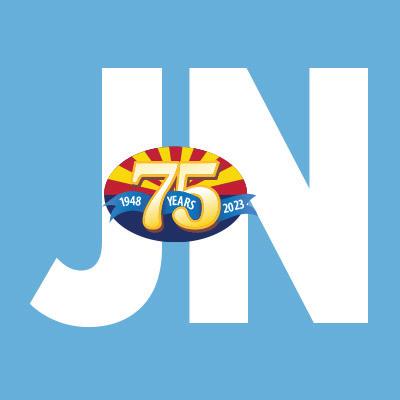
leaders, and the visit to Phoenix is “a natural outgrowth of a deepening relationship.”
Meyers was so captivated by the essays that he reached out to Silverman, and the two became friends.
That’s how Stern first learned of the open council seat, but there’s no doubt she earned her position, Meyers said.
As representatives of the largest kosher agency in the United States, Eleff said he and his colleagues have “a mandate and mission” to educate the Jewish community about what they do. Even those who have kept kosher since childhood don’t always have a grasp on what it takes to get an OU certification.
To become a council member, Stern had to apply and demonstrate that she had something valuable to contribute, he said.
“People don’t understand what goes on behind the scenes. It’s not just a rabbi blessing food. It’s very technical and can seem sort of like going into Willy Wonka’s chocolate factory,” Eleff told Jewish News.
“She’s on the council because she deserves to be on the council,” he said. Stern is creating a life and career as a member of her community, which makes her a great addition.
Goldberg gave a hands-on demonstration with fish purchased at Whole Foods. He let people examine it to identify the scales while he talked about what the Torah has to say on the topic, as well as what kind of issues arise when one wants to eat sushi or other seafood dishes.
Stern graduated from McClintock High School in Tempe last year and now attends Glendale Community College, with a focus on dance. She is a regular performer at Detour Company Theatre, a Scottsdale theatre company for adults with intellectual, developmental and physical disabilities.
“He was hilarious and took questions about certifying marijuana products and ‘What’s the deal with Oreo cookies? Are they really dairy?’” Eleff said. It’s a question they’ve received a lot.
In fact, when Stern attended her first council meeting in January, she couldn’t wait to tell people of her involvement with Detour and share information about its upcoming shows.
“There’s no question that she is going to thrive,” Meyers said. “She’s very gregarious and passionate about the things that matter to her.”
Stern looks forward to sharing insights
Ancient laws don’t easily apply to modern food production, with diverse equipment and factories filled with different items, many of which are non-kosher or at least non-pareve. In the case of Oreos, the certification specifies dairy even though the product isn’t actually made with dairy products.
MANAGING EDITOR
Mala Blomquist | 602.639.5855 mblomquist@jewishaz.com
STAFF WRITER
Shannon Levitt | 602.639.5854 slevitt@jewishaz.com
“If someone has a disability, saying the R-word is like saying the F-word,” Stern said.
While performing in the musical “Hairspray,” she had another occasion to tangle with the offensive word, which appears in the script.
There are a couple of things going on in that case, he explained. First, some of the equipment that makes the cookies also makes other dairy products and thus can’t be pareve. Second, if there is ever a need to tweak the recipe to include some dairy in the cookie, the company won’t have to reapply for a new certification, a process that takes time and expense.
“That’s really bad and my friend said it on stage. I was not OK with that, so I went to the director and told her it was a bad word for people with disabilities, but she wouldn’t take it out,” Stern said.
Isaacs said Elefant “was kind of a highlight,” in terms of entertaining the audience. People were especially rapt listening to him talk about the kosher prospects of Skittles. While most chocolate and candy products now have OU kosher certification, “the last frontier is getting Skittles across the finish line,” which might be getting closer, he said.
January 5
January 19
She let her mother know about the conflict and they were able to convince the director of the need to remove the word from the script.
“My friend Al was next to me when I told the director and he gave me the biggest hug ever and said that he loved me so much,” Stern said. Sadly, Al died in a car crash on Oct. 24, 2021.
August 23*
Heart Can’t Even Believe It: A Story of Science, Love and Down Syndrome,” Silverman’s book about her daughter. When Gesher’s speakers’ bureau, Damon Brooks & Associates, was asked to find a speaker about Down syndrome for an event this spring, Hummell first asked Silverman to speak, thinking Stern might be too young.
February 9
February 23
March 8
March 22
September 6
September 20
September 27
October 11
October 18**
They decided instead that Stern should tell her own story; it’s a real bonus that she is not afraid of public speaking.
April 5
April 12
“That was hard; it’s very hard to get emotions out and I was very, very upset,” she said.
The OU experts also met with students at Shearim Torah High School, Beis Chana High School, Yeshiva of Scottsdale, Yeshiva High School of Arizona and the Tucson Torah Center, where they gave Kosher 101 presentations.
April 19
October 25
November 8
November 15
“It’s not the same when someone tries to tell a person’s story for them,” Hummell said.
May 10
November 22
On the recent anniversary of his death, Stern made a cake and took it to the crash site.
“I don’t know how I did it without crying. I’m so proud of myself,” she said.
“It’s important to get into the community and meet students, the next leaders and kosher consumers,” Eleff said. The students asked many questions and at each school they went over their time allotment to answer them.
Amy Hummell, executive director of Gesher Disability Resources, agreed that Stern is a good fit for ADDPC because of her ability to self-advocate.
May 24
June 14
July 12
July 26
December 6
December 20
*Best of Magazine
**Annual Directory
Additionally, helping people with disabilities find jobs was one of the reasons for acquiring the bureau. Unemployment in the disability community is upwards of 75% and of that percentage, 75% are ready, willing and able to work — but haven’t been given the opportunity, Hummell said.
August 9
Hummell co-hosted a book event with Meyers a few years ago for “My
Schnitzer’s group met with the rabbis the night they arrived in Phoenix and peppered them with questions regarding specific items at restaurants, vegetables (what could cause a cucumber not to be kosher) and, of
“People have it in them to speak up but don’t know how, and often they’re not cheered on. Sophie has family support
SENIOR ACCOUNT EXECUTIVE
Jodi Lipson | 602.639.5866 jlipson@jewishaz.com
ACCOUNT EXECUTIVE
Carol Chandler | 480.481.1778 cchandler@jewishaz.com
SUBSCRIPTIONS
602.870.9470 x 1 subscriptions@jewishaz.com
GRAPHIC DESIGNER
Ricki Urban | 602.870.9470 X 2 advertising@jewishaz.com


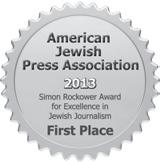

HEADLINES 2 APRIL 5, 2024 JEWISH NEWS JEWISHAZ.COM WWW.JEWISHAZ.COM
News
2024 Phoenix Jewish
Print Dates
KOSHER CONTINUED FROM PAGE 1 HEADLINES ................................. 2 Local TORAH/OPINION......................... 9 Commentary SPECIAL SECTION: CHARITABLE GIVING 10 SPECIAL SECTION: SENIORS ..................................... 13 COMMUNITY ............................... 18 Community Calendar Milestones OFFICE HOURS 8 a.m.-5 p.m. Monday-Thursday 8 a.m.-12:30 p.m. Friday DEADLINES EDITORIAL: Noon, Tuesday 9 days prior to publication ADVERTISING: 11 a.m., Friday 3 days prior to publication Jaime Roberts, Publisher | 2013-2016 Florence Newmark Eckstein, Publisher | 1981-2013 Cecil Newmark, Publisher | 1961-1981 Pearl Newmark, Editor | 1961-1981 M.B. Goldman, Jr., Founder | 1948-1961 Top Left: Photo courtesy of Dennis Givens | Top Right: Photo courtesy of Six Million Voices Bottom Left: Photo courtesy of Gili Getz/Dayenu via JTA | Bottom Middle: Photo courtesy of NATALIA KOLESNIKOVA/AFP via Getty Images via JTA Bottom Right: Photo courtesy of Tom Williams/CQ Roll Call/Getty Images via JTA HEADLINES OFFICE HOURS 8 a.m.-5 p.m. Monday-Thursday 8 a.m.-12:30 p.m. Friday DEADLINES EDITORIAL: Noon, Tuesday 9 days prior to publication ADVERTISING: 11 a.m., Friday 3 days prior to Jaime Roberts, Publisher | 2013-2016 Florence Newmark Eckstein, Publisher | 1981-2013 Cecil Newmark, Publisher | 1961-1981 Pearl Newmark, Editor | 1961-1981 M.B. Goldman, Jr., Founder | 1948-1961 PROUD MEMBER OF PUBLISHER Jewish Community Foundation of Greater Phoenix GENERAL MANAGER Rich Solomon | 602.639.5861 rsolomon@jewishaz.com MANAGING EDITOR Mala Blomquist | 602.639.5855 mblomquist@jewishaz.com STAFF WRITER Shannon Levitt | 602.639.5854 slevitt@jewishaz.com ADVERTISING SALES CONSULTANT Jodi Lipson | 602.639.5866 jlipson@jewishaz.com SUBSCRIPTIONS 602.870.9470 x 1 subscriptions@jewishaz.com GRAPHIC DESIGNER Ebony Brown | 410.902.2333 ads_phoenixjn@midatlanticmedia.com 2 FEBRUARY 17, 2023 JEWISH NEWS JEWISHAZ.COM 1948 2023 YEARS 12701 N. Scottsdale Road, Suite 201, Scottsdale, AZ 85254 Phone: 602.870.9470
editor@jewishaz.com |
| www.jewishaz.com
| Fax: 602.870.0426 |
advertising@jewishaz.com subscriptions@jewishaz.com
SOPHIE STERN CONTINUED FROM PAGE 1 ©2023 Phoenix Jewish News, LLC, an asset of the Jewish Community Foundation of Greater Phoenix. Awards: Arizona Newspaper Association, Arizona Press Club, National Federation of Press Women, Arizona Press Women, American Jewish Press Association. Member: American Jewish Press Association, Jewish Telegraphic Agency, National Newspapers Association. Jewish News (ISSN 1070-5848) is published less than weekly, by Phoenix Jewish News, LLC, dba Jewish News. A subscription is $48 per year, payable in advance to Jewish News, 12701 N. Scottsdale Road., Suite 201, Scottsdale, AZ 85254, telephone 602-870-9470. Periodicals postage paid at Phoenix, Arizona. POSTMASTER: Send address changes to Jewish News, 12701 N. Scottsdale Road., Suite 201, Scottsdale, AZ 85254. Top Left: Courtesy of Joel Zolondek | Top Right: Courtesy of Ophir Gross | Bottom Left: Dictionary definition of antisemitism via JTA Bottom Middle: Courtesy of Federico Pizano/Creative Commons 3.0 | Bottom Right: Courtesy Ironbound Films via JTA WWW.JEWISHAZ.COM January 6 January 20 February 3 February 17 March 10 March 24 March 31 April 7 April 21 May 5 May 19 June 9 July 14 August 4 August 18* August 25 September 1 September 8 September 15 October 6 October 13** October 20 November 3 November 10 November 17 December 1 December 15 *Best of Magazine **Annual Directory 2023 Phoenix Jewish News Print Dates HEADLINES 2 Local OPINION 10 Editorials Commentary TORAH COMMENTARY 12 SPECIAL SECTION: CAMP & SCHOOL 13 SPECIAL SECTION: HOME DESIGN & REAL ESTATE 16 SPECIAL SECTION: WEDDINGS 17 COMMUNITY 20 Calendar Community Milestones Sophie Stern at her high school graduation in 2022 COURTESY OF SOPHIE STERN ©2024 Phoenix Jewish News, LLC, an asset of the Jewish Community Foundation of Greater Phoenix. Awards: Arizona Newspaper Association, Arizona Press Club, National Federation of Press Women, Arizona Press Women, Jewish Telegraphic Agency, National Newspapers Association. Jewish News (ISSN 1070-5848) is published less than weekly, by Phoenix Jewish News, LLC, dba Jewish News. A subscription is $54 per year, payable in advance to Jewish News, 12701 N. Scottsdale Road., Suite 201, Scottsdale, AZ 85254, telephone 602-870-9470. Periodicals postage paid at Phoenix, Arizona. POSTMASTER: Send address changes to Jewish News, 12701 N. Scottsdale Road, Suite 201, Scottsdale, AZ 85254. VOL. 76, NO. 15 | APRIL 5, 2024 12701 N. Scottsdale Road, Suite 201, Scottsdale, AZ 85254 Phone: 602.870.9470 | Fax: 602.870.0426 | editor@jewishaz.com | advertising@jewishaz.com subscriptions@jewishaz.com | www.jewishaz.com
Jewish Community
of Greater Phoenix
PUBLISHER
Foundation
ASSOCIATE PUBLISHER Rich Solomon | 602.639.5861 rsolomon@jewishaz.com
COURTESY OF ORTHODOX UNION
Rabbi Chaim Goldberg, OU Kosher rabbinic coordinator, speaking at the Yeshiva of Scottsdale.
and political leaders to Israel to learn about its “values and global contributions to the world,” paid all of the legislators’ expenses.
House Speaker Rep. Ben Toma (R-27), who was behind a unanimously adopted resolution in January voicing Arizona’s full support for Israel in its war against Hamas, worked with Hernandez to ensure the trip included a cross-section of representatives.
“A lot of people were excited to go, and many of those who were unable to go for a variety of reasons — let’s face it, Israel’s not just around the corner — were bummed that they couldn’t make it,” Toma told Jewish News.
The March trip was the Peoria legislator’s third time in Israel and he watched as some of his colleagues experienced the country for the first time and “came to understand the reality on the ground in a way they couldn’t have done if they hadn’t gone.”
Itrek made sure the legislators heard from various people with different perspectives, which Toma thought was a net positive.
“We talked to Israeli Jews with different positions, Israeli Arabs and Palestinians living in the West Bank. Itrek didn’t shield us from blunt conversation, which was really valuable,” he said.
Hernandez liked that her colleagues also held diverse views. “Not everyone agreed about the war and it was nice that they still joined us.”
Recalling her first taste of Israel advocacy in high school, Hernandez described herself as “an all-or-nothing activist. I was young and didn’t understand why people didn’t agree with my position.” Over her three terms in Arizona’s legislature, she’s learned to value bipartisanship and working together to find solutions.
It has paid off in her legislative career, making her one of the few Democrats in a chamber controlled by Republicans to get her bills heard, moved along and passed.
“I give people grace because we’ve all been there. We all started out as fiery activists, but I credit the pro-Israel movement for my bipartisanship and ability to work across the aisle. Israel is not a partisan issue and shouldn’t be,” she said.
Rep. Consuelo Hernandez (D-21), who
course, Takis and Oreos.
“I was impressed listening to their questions,” Schnitzer told Jewish News, “You never know what they’re thinking about.”
The kids just wanted to keep talking all night because they were so intrigued, she said. They took the rabbis’ business cards and were excited to be connected under the OU umbrella, which gave them a path to talk to the organization’s leaders.
“They see the kosher products on their table, but this was a chance to see all the work behind the scenes,” Schnitzer said. Isaacs valued the opportunity to
is also Jewish, helped her brother and sister organize the trip and was pleased with the diversity of opinion.
During the conversations she and her colleagues had with Israeli officials, she observed that some “who have been on the fence showed a willingness to learn even though they were uncomfortable.”
Though the itinerary kept the legislators busy, the trip provided a unique opportunity for the politicians to get to know each other outside the office. Like many of her colleagues, she has a long drive to the capitol, where most of her time is spent in committee meetings.
This was the first time many people sat down for a coffee or meal together and got to know one another beyond a superficial greeting.
“Any time I can get to know someone, it’s worth the time,” she told Jewish News.
Some government officials, including Governor Katie Hobbs, a Democrat, and Arizona Senate President Warren Peterson, a Republican, criticized the timing of the Israel trip, which came in the middle of the legislative session. The state Senate even voted to deny a request to let the House adjourn for its week-long trip, but that didn’t deter Toma or Hernandez.
“The trip didn’t harm our process and we were on track with the bills that needed to get out,” Toma said.
“We had to go now,” Rep. Alexander Kolodin (R-03) told Jewish News. “This is when our friends are going through their darkest time and the most important thing is to be there for them. We wanted to demonstrate that Arizonans stand with the people of Israel unequivocally.”
Kolodin, who is Jewish, wanted to represent “the strong feelings of people in my district who support Israel.”
The legislators stressed the importance of the trade relationship between Arizona and Israel and the importance of the ongoing collaboration on water issues.
“The timing criticism is ridiculous,” Alma Hernandez said. “Committees did not stop and the capitol didn’t shut down.”
“Arizona didn’t collapse,” Consuelo Hernandez agreed. “In fact, it was the best timing because once we get into budget negotiation, we’ll actually know each other better.”
promote kosher knowledge for people who already keep kosher and those who are looking to learn more.
“The kosher options continue to increase as the Jewish community grows, and there are a lot of people who aren’t necessarily Orthodox who like to go to kosher restaurants too,” he said. Additionally, the more kosher options there are, the more kosher tourists are attracted to the area, something to which Casa Grande and its new small Hasidic community can attest.
“Kosher tourism gives the local industry a shot in the arm,” Isaacs said.
This was the first time the Hernandez siblings were in Israel together, something that made the trip extra special for each of them.
Meeting the family members of the hostages was emotional for Consuelo Hernandez, especially since one older man she encountered at a center to help families of hostages tell their stories reminded her of her own father, who was recently very ill.
Toma also noted that part of the trip was very difficult.
“Going to the site of the attacks and seeing videos of the attacks — you’d think you’d be desensitized by all the violence we see in the media, but this was really disturbing,” he said.
Kolodin said that seeing places where people were killed was awful and really shook up his colleagues.
“Everyone is used to the rough and tumble of politics, but people were just sobbing, people I’ve never seen cry before,” he said.
Blattman said that visiting the sites of the Oct. 7 attacks and speaking with victims’ families was very impactful.
“The conversations were heartbreaking but we were able to then take their sentiments to members of the Knesset and advocate on their behalf,” he said.
Alma Hernandez recounted a tearful day when everyone went to Yad Vashem, Jerusalem’s Holocaust museum.
“There was not one dry eye that day,” she said. It was a tough day all around since it was the same day they met with the hostages’ families. She was touched by the story of a mother whose son was killed but still advocated for peace.
“Even through all this pain and suffering, she was still advocating for Israelis and Palestinians to live side by side in peace. She still has hope in her heart there will be peace. Listening to her was deep, heavy,” she said.
Technically, the trip lasted seven days, but with travel time, the legislators only had five days to rush through a crowded itinerary before heading home. Those who went have publicly said it was a worthwhile trip.
“I’m glad I had the opportunity to show the people of my district’s support for the people of Israel in this existential struggle; I’m grateful I did it and I’d do it again,” Kolodin said. JN
Eleff’s grandparents have lived in Tucson since 1990 and he’s been very impressed by the growth of the Jewish community in the state, especially in Greater Phoenix. “Tucson is still kind of the Wild West, but it’s unreal what’s going on with growth in Phoenix,” he said.
Admittedly, every city has its own challenges, and he hopes that he and all his colleagues at OU can help Greater Phoenix “find ways to make the religious infrastructure in the city meet its growing need.” JN
For more information, visit oukosher.org.
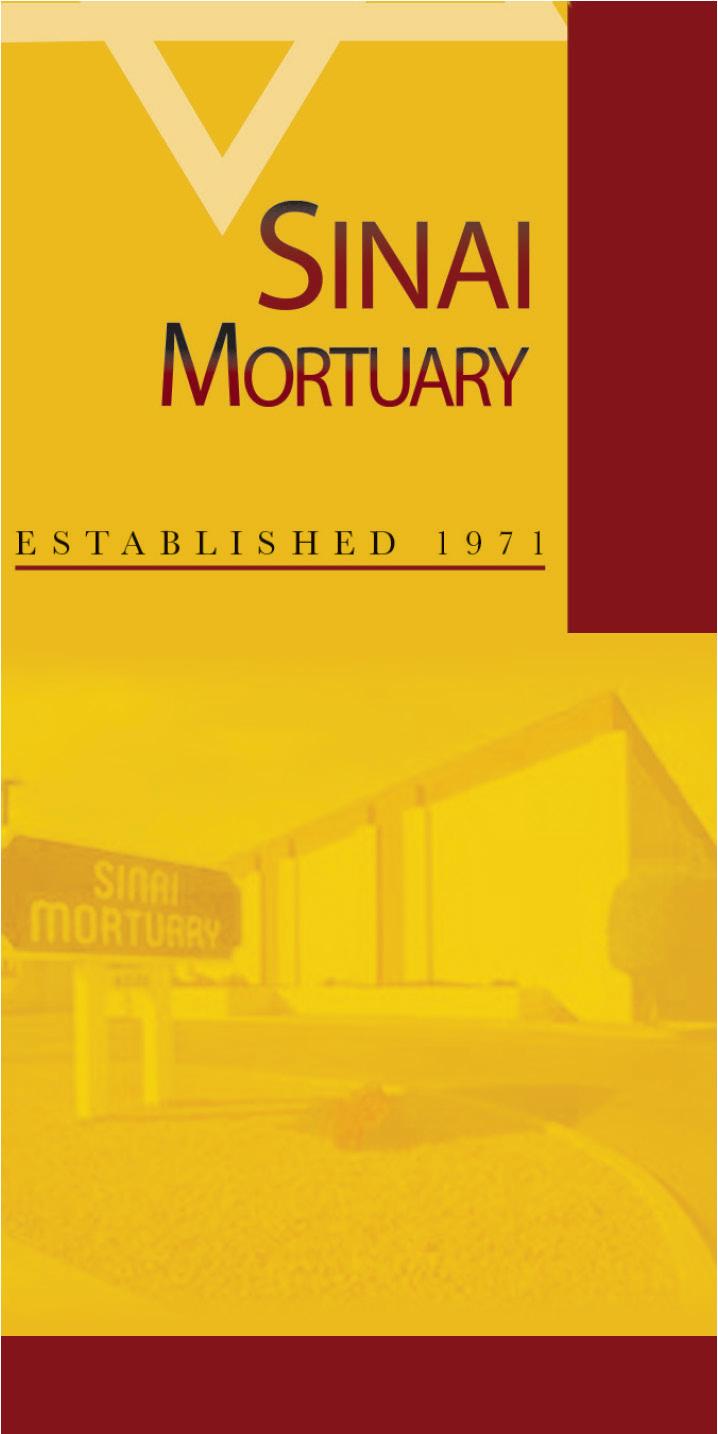


HEADLINES JEWISHAZ.COM JEWISH NEWS APRIL 5, 2024 3
TRIP CONTINUED FROM PAGE 1
Funeral Home
Owned & Operated Funeral Home
Arizona’s Only Funeral Home Endorsed
Rabbinical Council Perlman Family (602) 248-0030 4538 North Sixteenth Street Phoenix, Arizona 85016 www.sinaimortuary.net email: office@azsinai.com A Jewish Cemetery that cares about the Jewish Community • Jewish Owned and Operated • Sidewalks at Every Grave • Caring Professional Staff • Intermarried Families Welcome (480) 585-6060 24210 N. 68th Street, Phoenix (off Pinnacle Peak Rd) mtsinaicemetery.com
@ Arizona’s Only Jewish
@ Arizona’s Only Member of the Jewish Funeral Directors of America @ Arizona’s Only Jewish
@
by the Entire
ASU’s partnership with OpenAI is largely thanks to Jewish information leader
SHANNON LEVITT | STAFF WRITER
In February, Arizona State University (ASU) students and faculty began using OpenAI’s ChatGPT Enterprise technology in the classroom and beyond, including for purposes of advising students, scholarly research and tutoring, marking it as the first institution of higher education to embark on such a partnership with the company.
ChatGPT is a language-learning model capable of organizing and writing new text. While some universities are taking a wait-and-see approach to this generative artificial intelligence, most ASU students and researchers already use it. “The institution is finally catching up to where our students and researchers need us to be,” said ASU Chief Information Officer Lev Gonick, the Jewish point man for the new partnership.
Gonick said there is a long Jewish tradition of “puzzle solving” and “connecting the dots analytically.” He traces his career in education “back to my own experience with the great teachers in
my Jewish parochial school experience, who opened up all the books of learning and encouraged me to experiment and to discover,” he said. Just as those teachers gave him the “keys to the journey,” he hopes to give “a new set of keys for people in the 21st century to discover, to create, to follow their curiosities and passions.”
Technology is a big part of “the secret sauce” that makes ASU a leader and this is one more initiative aimed towards that end, Gonick said. Various schools and school leaders take a dimmer view, questioning whether the disruptive nature of the technology is something to embrace. Some public secondary school districts (Los Angeles, New York and Seattle are a few) even went so far as to block the technology last year, mostly because of plagiarism concerns.
Gonick holds a very different view.
“At the very moment that a lot of people were concerned that experts and expertise were going out the window with AI, in reality, there’s never been a more
important time for experts and expertise, especially as universities like ours begin to use the power of the tools,” he said.
For example, Kyle Jensen, director of ASU’s writing program, has spent the last two years working with an Israeli tech company, AI21 Labs, to incorporate Wordtune, its AI-powered reading and writing companion, to help the 20,000 students who take freshman composition every year understand and develop their own writing voice.
Writing teachers can’t give the amount of facetime some students need to develop such an important skill as writing and “students are reporting they’re thrilled to find their creative voices and ways of expressing themselves,” Gonick said.
ASU President Michael Crow told Gonick a year ago, “Lev, you’re on point for what we’re going to do with AI here,” he said to Jewish News.
Consider biology.
Every year, 10,000 introductory biology students take a lab with the assistance of virtual reality technology called Dreamscape Learn. While students are studying endangered species with their virtual reality avatar (an individual representative image), ChatGPT will add to the experience by making the avatar a biology expert capable of incorporating the individual student’s knowledge. Not only can it go over key concepts and manage students’ time on various elements but it can also ask questions, “prompting them to understand that there are really important questions they need to consider as they actually solve the challenge of keeping the food web healthy because it looks like it’s under duress,” he explained.












“ASU recognizes that augmented and artificial intelligence systems are here to stay, and we are optimistic about their ability to become incredible tools that help students to learn, learn more quickly and understand subjects more thoroughly,” Crow said in a statement.
Given that Gonick’s job is “to advance the overall technology vision for the institution” in coordination with Crow and ASU COO Chris Howard, he sees this partnership as a giant step forward for all sorts of applications that will benefit everyone at the university, especially students.
With ASU’s enormous student body (roughly 173,000 students), getting facetime with faculty is challenging. Handling some of the most basic things with AI is a good use of the technology, Gonick said.
“There are all kinds of questions about how to navigate the class election and 100 other things that students are interested in. The use of advising bots, both for our on-campus students, as well as for our online students, is a big opportunity,” he said. Chatbots (programs designed to simulate conversation with human users) could cover everything from basic questions about deadlines to more personalized tutoring sessions.
There are also a number of large lecture classes, particularly science classes, that new students often have trouble with due to the subject matter’s complexity and the lecture hall’s size. Gonick believes ChatGPT will be instrumental in helping students be successful learners in these courses.
Though he’s bullish on AI, he’s also quite aware of the concerns surrounding the technology, which is still relatively new, especially concerning plagiarism and misinformation and said ASU is “consulting with world-leading experts in the area of ethics and AI.” It’s also important to note that the version ASU “does not come into contact with or get contaminated” by the large language models in the general consumer version of ChatGPT, he said.
“We are calculated risk takers,” he said when describing himself, his team and ASU’s administration overall.
The version ASU will use is “a much more discrete, localized version, which is what you would expect from the best library,” complete with privacy functions to protect students and scholarship, he said.
When the announcement was first made that students and professors will be able to propose uses for the technology in February, they were so excited they even tried “to jump the line” when submitting inquiries. Of course, there are some skeptics, which is not so different from what he experienced as a young professor in the early 1990s when the World Wide Web was first introduced. Then too there were myriad anxieties and concerns about what it would mean for universities and learning in general.
“People asked the same questions about whether it would change teaching and learning or create opportunities and, sure enough, it changed the world. Now we’re there again,” he said. JN
HEADLINES LOCAL 4 APRIL 5, 2024 JEWISH NEWS JEWISHAZ.COM
Happy Pecach from David and Linda Weinstein, owners SERVING AZ SINCE 1993 Look & Feel Your Best Mystic Studio Inside PerSpectacles NICOLE PEIRCE, LIC MED AESTHETICIAN CALL 4808938776 Today for a FREE consultation TheDryEyeTeam.com IPL - RF - Micro Needling Facial Beauty Expert • Audiology • Optometr y • Medical Aesthetician • Dr y Eye Treatments BOGO * on Eye Glasses! Join Our App and Get $100 to Spend in our Store! $25.00 When U Join $25.00 On Your Visit $25.00 Leave a Review $25.00 Refer a Friend
Arizona congressman wants more money for synagogue security
SHANNON LEVITT | STAFF WRITER
Last November, a month after Hamas’ terrifying incursion into Israel that killed 1,200 people, Congregation Or Tzion Rabbi Andy Green received an email with the subject line in all caps, “HITLER WAS RIGHT RABBI GREEN.” The message contained vile antisemitic slurs blaming Jews for “everything evil in this world.”
The email’s sender demanded that Green contact a district court judge in Utah and “convince your servant” to drop a charge against him. He referenced a court case number, also included in the subject line, and the name of the judge. “If you do not use your influence to right this wrong I will execute you and every other JEW (sic) I can find tonight at midnight of your Sabbath.”
The FBI and police worked quickly to arrest the man who sent the email, but his threats against the Scottsdale rabbi and his congregation are harder to shake. Sarah Kader, Anti-Defamation League (ADL) Arizona’s community manager who connected Green with law enforcement, reported an 86% increase in antisemitic incidents, including vandalism and threats of physical violence, in Arizona last year. Synagogue leaders have had to step up defenses to protect worshippers, and that comes at a significant financial cost.
In light of that reality, Republican Representative David Schweikert, who represents Arizona’s 1st District in the U.S. Congress, announced legislation on the first day of March to make the current federal Nonprofit Security Grant Program (NSGP) more flexible when it comes to the pressing needs of religious communities.
Currently, NSGP provides funding support for “target hardening,” such as additional fencing and other physical security enhancements to nonprofit organizations and houses of worship that are at high risk of being attacked. Schweikert introduced the “Warranting of Religious Spaces to Handle Increased Protection” (WORSHIP) Act to increase the spending limits on personnel, including security guards, and to suspend the waiver request process when the cost of personnel goes past the 75% cap.
After Oct. 7, Schweikert made a point of visiting several synagogues in the com-
munities he represents and said the stress people are under is palpable.
“Several rabbis told me how much money has to go to human security resources such as armed guards, particularly if you have schools and daycares,” Schweikert told Jewish News.
That’s certainly what he learned from Scottsdale’s Congregation Beth Israel (CBI) Senior Rabbi Stephen Kahn when he called him to express his condolences after Oct. 7.
“He was kind enough to call and check in with me and the synagogue and I told him our budget is simply not built for the amount of money we have to spend to keep our preschool kids and congregants safe,” Kahn told Jewish News.
After a white supremacist killed 11 people and injured six more at Pittsburgh’s Tree of Life Congregation in 2018, CBI’s budget line for security “went from x to multiples of x and that amount keeps growing and growing,” Kahn said.
CBI has benefitted from NSGP grants before, but “it only pays for brick and mortar stuff,” Kahn said. “After Oct. 7, we added a second full-time security person and if you do the math the cost is not sustainable without local, state or federal partners.”
Though he left the conservative House Freedom Caucus in 2022 for not being conservative enough, Schweikert was a founding member when it formed in 2015, in large part because the congressman favors small government and opposes broad federal spending.
“I’m terrified of the growth of debt,” Schweikert said. “We’re borrowing $9 billion a day but on some of these things that keep our community safe, we’re talking fractions of fractions of fractions of that. This legislation doesn’t drive debt. This is rational, something we can do to make communities safer.”
Kahn said the legislation would “be a gift and make life so much easier.”
Green was “deeply grateful” for Schweikert’s legislation that “will help ensure the security of our synagogues and other Jewish community institutions. The recent rise of anti-Jewish hate makes the need unambiguous,” he told Jewish News
“ALL IT TAKES IS ONE PERSON WHO IS MENTALLY ILL TO DO SOMETHING EVIL; WE NEED TO STEP IN FRONT OF IT.” REP.

in a text.
Schweikert believes the legislation will gain bipartisan support and is looking for co-sponsors. It will need to be assigned to a House committee, or possibly be added to another bill as an amendment, then go through “a whole dance of legislation,” he said.
The congressman, who said he is motivated by his faith and wants people to feel
secure “when exercising their religious liberty,” is reaching out to other houses of worship, including mosques, that could benefit from the legislation.
“All it takes is one person who is mentally ill to do something evil; we need to step in front of it,” Schweikert said. “Talking to these rabbis, I can feel the hunger to keep their families safe; I’m just trying to help.” JN

HEADLINES LOCAL JEWISHAZ.COM JEWISH NEWS APRIL 5, 2024 5
I T ’ S Q U I T E F A S H I O N A B L E T O B E D O W N T O E A R T H A t T r u e w o o d b y M e r r i l l , S c o t t s d a l e y o u ’ l l f i n d a s e n i o r l i f e s t y l e t h a t i s r e a l a n d p r i c i n g t h a t i s h o n e s t A n d , o f c o u r s e , v i c e v e r s a . Senior Living Lic #AL11354C *Based on availability. Call for details Starting at $2,550!* 480.426.7101 • truewoodscottsdale.com 9185 E Desert Cove Ave, Scottsdale, AZ 85260 TRUEWOOD BY MERRILL SCOTTSDALE
DAVID SCHWEIKERT
Rep. David Schweikert at Ahavas Torah: Scottsdale Torah Center in August 2023.
COURTESY OF CONGRESSMAN DAVID SCHWEIKERT’S OFFICE
After antisemitic slurs and racist screeds, Flagstaff City Council relieved by ‘compassionate’ ceasefire discussion
SHANNON LEVITT | STAFF WRITER
Flagstaff Mayor Becky Daggett quickly adjourned the first city council meeting in March after four separate callers abused the meeting’s public comment period to go on racist screeds, deny the Holocaust and hurl antisemitic slurs at the council members, none of whom are Jewish.
The callers, who watched the March 5 meeting virtually, used hate-filled rhetoric to warn “white Americans” against minorities bent on “destroying white civilization” and “Communist Jewry and other scum uniting to keep us enslaved,” in addition to shouting profanity after being cut off.
Councilmember Jim McCarthy, who is in his eighth year on the council, was surprised and angered by what he heard that night.
“I have never heard hate speech at a council meeting. The members and I consider that kind of speech absolutely unacceptable. It’s bull----,” he told Jewish News.
He noted an alarming rise in public disruptions around the country and theorized that the callers might not have been local and were likely working in concert.
“Four calls in one night was beyond coincidence. I think it was organized volunteers working for some fascist organization.”
He was particularly aggrieved by the Holocaust denial, recounting that one of his first bosses, “with tears in his eyes,” told him stories of helping to liberate concentration camps.
Councilmember Deborah Harris, one of two African Americans on the council, was also disturbed but not surprised.
“Unfortunately, it’s more common nowadays because people have been given permission to be disagreeable and nasty, for lack of a better word,” she told Jewish News. While people have a right to their opinions, “it doesn’t mean it’s not dispiriting.”
African American Councilmember Khara House attended the meeting that night virtually.
“Sadly, it meant not only hearing them (the comments) alone but also hearing them fill my home, a place usually of solace and peace,” she told Jewish News in an email.
House called the comments “a sad representation of hateful rhetoric that has been on the rise in our nation for the past several years.” Though she felt alone at that moment, community members reached out immediately to let her know she was not alone in being scandalized by the antisemitic and racist language; thus, “even in an echo chamber of hate, love reverberates and prevails,” she said.
The comments were “painful” but

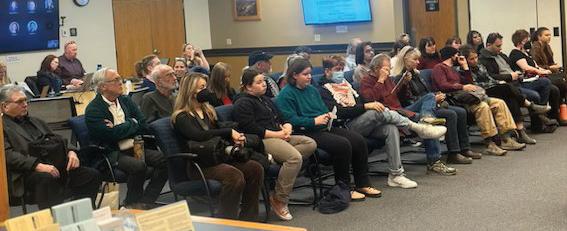
ultimately, “they do not win,” she said. By March 19, new guidelines were in place requiring those wanting to make a comment not related to the agenda to appear in person. Flagstaff City Manager Greg Clifton told Jewish News that the new protocol “may not dispense with the ability for people to continue with the hate speech, but I hope that it’s a step in the right direction.” However, there was some nervousness in the room that Tuesday based on the final item of the meeting’s agenda: “A Citizens’ Petition titled Permanent Cease-fire Resolution.”
The petition was signed by 73 people in person and more signed online; close to 100 people attended the city council meeting to make a comment or listen to the discussion.
The resolution requests Flagstaff’s city council to call on the U.S. Congress and President Joe Biden to urge a permanent ceasefire in Gaza, to send humanitarian assistance to Gazans and to support a just resolution to the Israeli-Palestinian conflict. It also calls on Flagstaff to support all Jewish, Muslim and Arab residents of the city and to condemn antisemitism, Islamophobia, racism and xenophobia.
The public comments came in hour five of a six-hour meeting after the mayor
insisted that there would be no outbursts in the gallery during comments. She also said she expected everyone to say their piece in a respectful manner despite the differing opinions.
Twenty-three people spoke in person, most in favor of adding the resolution to a future agenda. They were each given three minutes to speak and everyone abided by that rule. Aside from a couple of people who spoke with pitched voices, most spoke calmly if also passionately.
The majority spoke in hopes of convincing the council to consider placing the resolution on a future agenda to be vote d on. Most of this contingent included Indigenous people, PalestinianAmericans, descendants of Palestinians and at least two Jewish people, talked about the humanitarian suffering in Gaza, the disparity between Israel’s military and impoverished Palestinians in Gaza, the importance of caring about people — even when divided by an ocean — and the recognition that Flagstaff was settled by people who displaced the Indigenous inhabitants, who still suffer from that displacement.
Three people made comments that could easily be considered antisemitic.
One person asserted that the horrific

Hamas attack on Israel on Oct. 7 was merely “justified armed resistance.” Another accused Jews of thinking that being “the chosen people” makes them “above the law” and equated Zionism with fascism. One person called charges of antisemitism in the U.S. “manufactured.”
However, most people who mentioned antisemitism agreed that it was a problem, but one that did not supersede Palestinian suffering.
“Calling for an end to Palestinian suffering is not antisemitic,” said a Jewish woman who spoke in favor of the resolution.
“Anti-Zionism is not antisemitism,” said a Palestinian-American student at Northern Arizona University in Flagstaff with family in Gaza. “We have to recognize that weaponizing Jewish trauma to punish Palestinians is not acceptable.”
A few people spoke against the resolution, including one person who said he was for a ceasefire but only one that included the unconditional surrender of Hamas and a return of all the hostages.
The only professed Jew who spoke against the resolution was Chabad of Flagstaff Rabbi Dovie Shapiro. “A call for Israel to disarm is a call for genocide,” he said and referenced the story of Purim, the upcoming Jewish holiday that commemorates the saving of the Jewish people from annihilation at the hands of Haman.
“We were all very traumatized by hate speech two weeks ago,” Vice Mayor Austin Aslan said after the final speaker, referencing the March 5 meeting. “We were all bracing for ugliness tonight and this conversation was mature and respectful.” He said his own views on the war between Israel and Hamas were “complex, evolving and sometimes contradictory” and he was willing to have further discussion, though he wouldn’t say how he’ll ultimately vote.
The mayor thanked people for speaking in an “honorable and compassionate way,” which is what she expects to happen in the future.
The council decided to move the ceasefire resolution to an as-yet-undetermined future agenda.
HEADLINES LOCAL 6 APRIL 5, 2024 JEWISH NEWS JEWISHAZ.COM
Screenshot of warning language regarding hateful rhetoric during the March 5 Flagstaff City Council meeting.
Screenshot of Flagstaff City Council meeting on March 5 that included antisemitic and racist calls from the public. From left are Councilmembers Lori Matthews and Deborah Harris, Vice Mayor Austin Aslan, Mayor Becky Daggett, Councilmembers Jim McCarthy and Miranda Sweet.
Flagstaff residents come to listen as a ceasefire resolution is discussed at the city council on Tuesday, March 19. COURTESY OF DENNIS GIVENS
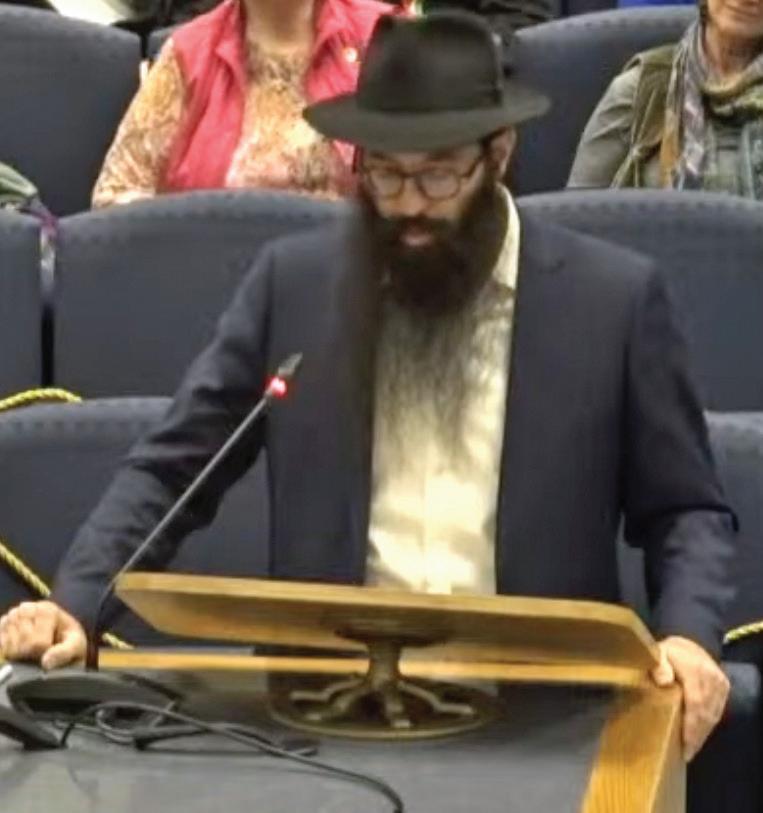
“We’re at a pivotal point, not only in the world but in Flagstaff, with divisive conversations,” said Councilmember Miranda Sweet, who was also undecided. “We need to come together to figure out ways to agree to disagree because I do not want to see hate speech again.”
Harris said she understood that for some, “trauma is generational and it becomes part of your DNA.” However, she suggested that a community conversation on the issue might be a better way to address it.
She’s a proponent of open discussion, even when the conversations are difficult. Earlier in the month, Harris met with African American high school students in Flagstaff who told her of the racism they contend with on an almost daily basis in their school and community.
She thought “long and hard” before sharing what she learned from them during the March 12 council meeting, when city council members are invited to discuss matters not on the official agenda.
“When we keep things secret and don’t share that kind of information, it gives permission for it to continue,” she said. “People say we don’t have racism in Flagstaff but we do and people need to own it.”
The contingent of callers on March 5 “didn’t just wake up one morning and decide to do that,” Harris said. Not confronting this kind of sentiment publicly, “is how we got to March 5.”
As a regular attendee, Flagstaff resident Dennis Givens offered his perspective on what it was like to hear the hateful rhetoric on March 5. “Usually, it’s just the council, the city staff and me,” he told Jewish News. Givens, who works at a vegan restaurant, is planning a run for the council and often offers public comments about various things he’d like the council to consider.
What he heard on March 5 took him aback.
“I really couldn’t believe it at first. Usually, people express concerns about the city, but this turned into something else. It was actually sad and disturbing,” he said.
The first caller argued that April should be named “White History Month” and recounted his belief that immigrants, full
of “animosity towards fair-skinned people,” are “endangering the future for white Americans” and that minorities are bent on “destroying white civilization.”
For those wanting to learn more about his racist ideas on “white replacement and the historical events that the antiwhite media establishment want to keep hidden from unsuspecting white people,” he suggested two Neo-Nazi propaganda “documentaries” that have both been listed on the Anti-Defamation League’s website of extremist ideologies.
After calling Israel a “terrorist state,” the second caller excoriated the council for considering a proposal to send a letter to Congress about additional funding for Ukraine, something the caller labeled as “disgusting” before being cut off for disregarding that this comment period is set aside solely for items not on the agenda. As the mayor explained this, the caller yelled, “Don’t interrupt!” and proceeded to explain the need to deport people.
The third caller said it was time for people “to expel all enemies of the white race” and pick a side, deciding whether “you stand with the pedophilic Marxist Jews” or “our people.” Then he trumpeted a litany of Holocaust denialism, complete with NeoNazi conspiracy theories about the ink used by Anne Frank and that gas chambers were only for delousing people. People only believe that six million Jews died thanks to “Holly-Jew-Wood propaganda films,” he insisted.
During this rant, the city attorney consulted with the mayor and the caller was cut off.
A fourth caller tried again to address the Ukraine issue but was informed she could not speak to an agenda item. When the mayor invited people in the gallery to offer comments, Givens came forward. However, the previous caller was still on the line and began shouting epithets at the council members: “You’re all kikes! Disgusting f---ing kikes!”
When Givens said the hate speech that night had saddened him, she shouted again, “Hate speech is fake and gay!”
“I guess I’m a Jew,” Givens, who is half-Korean, said that night. Though he is not Jewish, he wanted to make a point to the white supremacist callers because “they don’t like mixed-race people and blame Jewish people for that,” he told Jewish News.
On March 12, he addressed the hate speech again during an open comment session “to make sure people don’t push it under the rug,” he said.
“I wanted to come to everyone’s defense, especially those of Jewish descent. The history of the world hasn’t been good to them and I don’t want to fall back into the same mistakes the world has made before,” he said. JN
To view Flagstaff City Council meetings, visit youtube.com/@FlagstaffCityGovernment.


Phoenix Holocaust Association
Yom HaShoah Commemoration
Nissan 27, 5784
Sunday, May 5, 2024
3:00pm : “Memories Among the Generations”
4:00pm: Community-wide Yom HaShoah Commemoration
Ina Levine Jewish Community Campus
12701 N Scottsdale Rd, Scottsdale, AZ
In partnership with the Center for Jewish Philanthropy, please join the Phoenix Holocaust Association (PHA) at its annual community-wide Yom HaShoah observance. Memorialize your loved ones, honor survivors, and express your feelings about the loss of over 6 million lives in the Holocaust in the 2024 Yom HaShoah Book of Remembrance.
For more information on the community-wide Yom HaShoah Commemoration or to add a memorial listing in the 2024 Yom HaShoah Book of Remembrance, visit: https://phxha.com/remember/ Remembrance tributes are due by April 4.
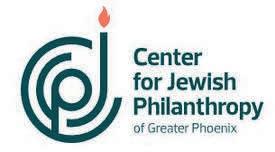


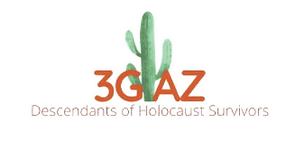










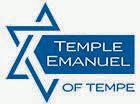


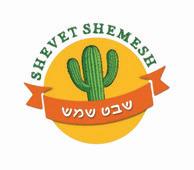

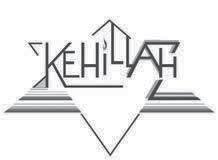


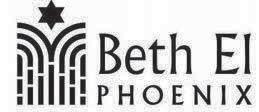

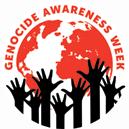


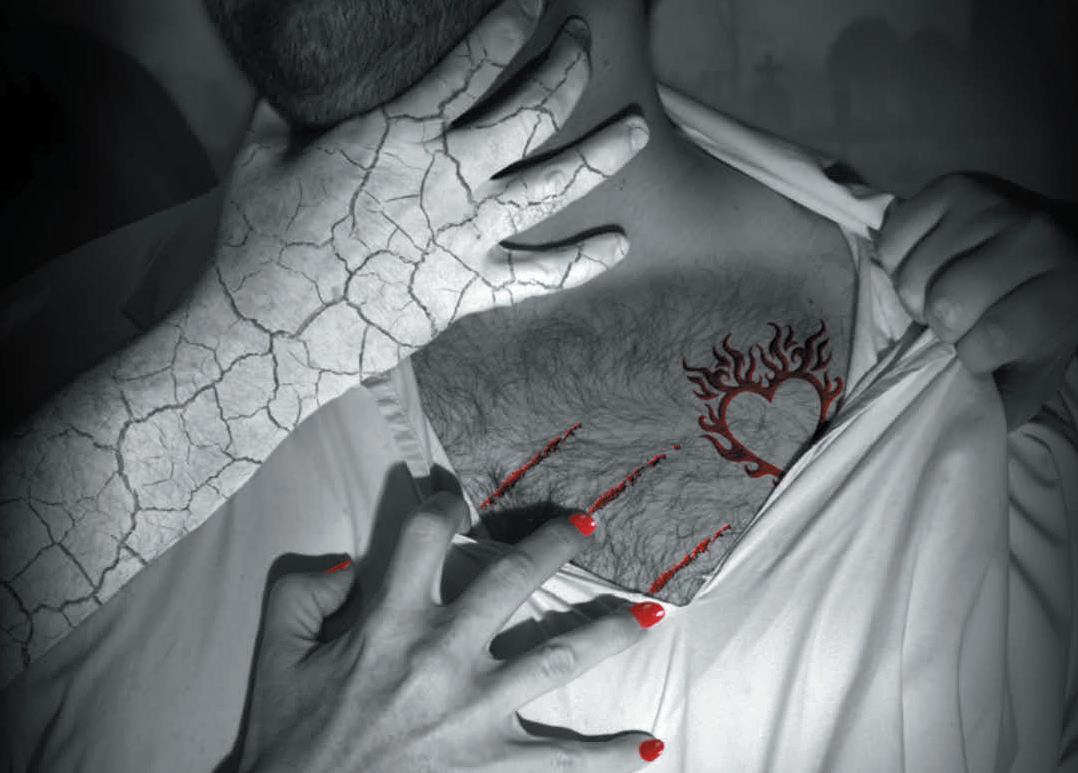



HEADLINES LOCAL JEWISHAZ.COM JEWISH NEWS APRIL 5, 2024 7
OBSESSION DonGiovanni APR20&21(PHX)|APR27&28(TUC) az ope ra.org | 602.266.7464(PHX) | 520.293.4336(TUC) GE T YOU R TICKET S TODAY
Chabad of Flagstaff Rabbi Dovie Shapiro asks the Flagstaff City Council not to make the resolution an agenda item in the future. COURTESY OF JEWISH NEWS
Wheelchairs and hoops: Israeli team brings their skills to Arizona
MALA BLOMQUIST | MANAGING EDITOR
Spectators were treated to an exhibition game by members of the Israel ParaSport Center’s (The Center) Hope in Motion Wheelchair Basketball Tour on Thursday, March 7, at the Valley of the Sun Jewish Community Center (VOSJCC) basketball court, inside the Ina Levine Jewish Community Campus in Scottsdale.
The team usually competes in countries all over Europe in the EuroLeague in March, but this year, since they were assigned to play in Turkey, the Israeli Ministry of Culture and Sport told them they could not compete due to security concerns. The team tried to appeal to the EuroLeague to play in another country but was declined. So, they came to the United States.
The team played at the Tucson Jewish Community Center on March 6, first playing against the University of Arizona’s Men’s Wheelchair Basketball Team and then the Tucson Lobos, a Southern Arizona Adaptive Sports Team. After their stop in Scottsdale, they headed to California.
Paradise Valley resident Steven Schwarz has been involved with the Israel ParaSport Center for more than 20 years and helped bring the team to the VOSJCC.
He was first introduced to The Center by his parents. “It was in its early stages, and they felt the dollars they gave could have a significant impact on the organization,” said Schwarz.
His family are members of Congregation Or Tzion in Scottsdale, and for his son Max’s bar mitzvah project he held a wiffle ball tournament, with the proceeds going to The Center. Schwarz’s nieces were also doing their bat mitzvah projects and a group of family members traveled to Ramat Gan, Israel, to present their checks in person to The Center.
“The Center provides rehabilitation, social services and competitive adaptive sports programs for thousands of Israeli children and adults with physical disabilities,” explained Marsha Rothpan, West Coast director at The Center. “They’re either born with them or they acquire them through an accident, illness or acts of terror.”
Hakim Kashua, 22, has been playing wheelchair basketball for 10 years. Born with spina bifida, Kashua was introduced to The Center by a school friend. After trying out several adaptive sports offered, he said he fell in love with basketball.
“The Center taught me to be independent, self-confident and I made a lot of friends,” he said. “It taught me
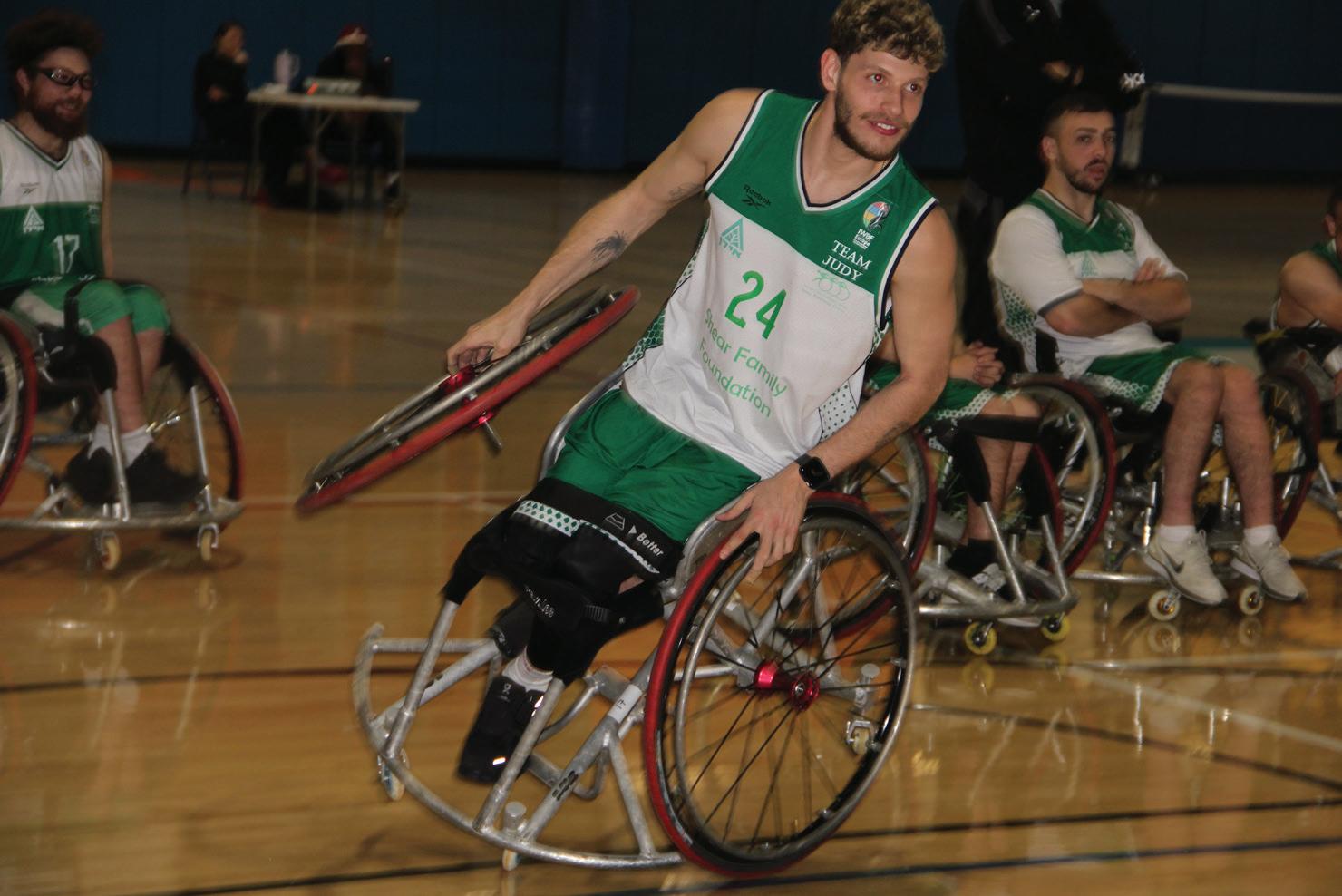

there are other things in life I can achieve. I’ve traveled the world; I didn’t think in my life that I was going to be in the U.S. — it’s one of my dreams to be here.”
Before the team took to the court for an exhibition game, Coach Lior Dror, a professional athlete and twotime Paralympian who lost his leg in a traffic accident, explained the three main differences between a wheelchair for daily use and one modified for wheelchair basketball: additional wheel(s) in the back, a bumper in front and the primary wheels on the sides are angled for speed and maneuverability.
Dror then had player Amit Vigoda, 22, demonstrate some moves. Vigoda showed how to avoid a traveling violation by dribbling the ball after two pushes, how to get back upright if the wheelchair
goes over and one extra move — how to “dance” by taking one wheel off and spinning on the other.
Vigoda got involved in playing wheelchair basketball in California’s Bay Area after having his right leg amputated when he was 11 due to a rare orthopedic disease. He said he first thought being in a wheelchair would be limiting but soon, “I felt fast, I felt empowered and it also gave me confidence in other aspects of my life.”
When his family moved to Israel, he was concerned he would not have the same opportunities he had in California. “Luckily, The Center contacted my parents and told them that when we got to Israel, I would have a home to do what I love — and that’s sports.”
In 2021, Vigoda was named MVP at
the U.S. College Wheelchair Basketball Championship Tournament; in 2022, he was named MVP at the Maccabi games; and he currently plays for Amicia Abruzzo in Italy, where his team won the 2023 EuroCup.
After Vigoda and the team played an exhibition game, Dror invited children and teens onto the court to play with the athletes. While some kids got the hang of it quickly, others were trying to figure out how to make the wheelchair move in the direction they wanted. The professionals helped the novices get across the court and allowed them to score baskets. As the kids left the court, many commented on how the players had made it look much easier than it was.
The Hope in Motion Tour is part of a $2 million fundraising campaign to sustain funding for current athletes, build new shelters and create the Shesek program to provide adaptive and rehabilitative sports to hundreds of people with disabilities who have been displaced by the war.
“There are about 200,000 refugees from the north and south that are all over the country,” said Sarah Meisenberg, director of international relations at The Center. “The first goal is to find the refugees with disabilities and then hire trainers and athletic staff to provide them services.” She also said that any refugees relocated near Ramat Gan can use The Center’s facilities for free.
“Recently, we’ve expanded to help survivors of the Nova festival and we’re working on being an official partner with the IDF (Israel Defense Forces),” said Meisenberg.
Meisenberg said she played basketball and moved to Israel to play on its national lacrosse team. She grew up seeing the benefits sports had for herself and others.
“I see the benefits every day for the people that come into The Center, whether they’re kindergarteners or the elderly,” she said.
Schwarz added that people can’t understand The Center’s impact on its participants until they visit it or meet the athletes.
He said that “everyone needs a purpose” and after experiencing devastating situations these athletes refocus and have goals, which carry over to the rest of their lives. “It’s hard for anyone who has gone through what they have to learn how to maintain that perspective, but I think The Center enables them to do that.” JN
For more information, visit israelparasport.org.
HEADLINES LOCAL 8 APRIL 5, 2024 JEWISH NEWS JEWISHAZ.COM
The Israel ParaSport Center’s wheelchair basketball team warms up at the Valley of the Sun Jewish Community Center. COURTESY OF JEWISH NEWS
Amit Vigoda demonstrates how to “dance” on one wheel. COURTESY OF ISRAEL PARASPORT CENTER
Developing the material world

As a young Chabad teen in New York City, Manhattan was an optimal place to hone my rabbinic skills and training. “Excuse me ma’am/sir, are you Jewish?” may be a familiar question to you. When the answer was affirmative, this would lead to an offer and opportunity to lay tefillin or to receive Shabbos candles. We would meet scores of happy “customers” and have many meaningful interactions.
Sometimes it was a quick game of wits; a cute response and then the ball was back in your court. “Not today,” said the very Jewish man. “Take this for tomorrow then” we would shoot back and hand him a menorah. “Tomorrow will be night number five of Chanukah.” A smile, and we parted.
One response sits with me till today: “Excuse me sir, are you Jewish?” Tapping on his heart he responded, “I’m Jewish
here. That’s good enough for me.”
What he probably meant was that he was a passionate and proud Jew — in his heart. He was filled with strong feelings about his identity, and for him, that was enough. He didn’t feel the need to translate that into action or deed because that would diminish the flames that burned inside. The technicalities and protocol of a mitzvah would not do justice to the unbridled feelings of his heart. Better leave it in the heart. It fills his being with Jewishness. He feels full.
Aron the High Priest finished inaugurating the tabernacle on the first of the month of Nissan, and he and the people are in a festive mood. Word comes that two of his sons have offered an unauthorized incense and they have therefore died. How could this have happened? On the first day of operation, when they had seen the glory of a G-dly service done right, why would they corrupt a sacred task?
Chassidic masters are not satisfied with attributing this behavior to simple mischief. These are great people, the children of great people, educated by great people and leaders themselves. No, this could not be merely youngsters undermining authority. They explain that Nadav and Avihu had a
deep passion for serving G-d. They witnessed the successful building of the tabernacle and the purity of the service therein and they felt an unquenchable desire to experience it as well. They could not have imagined a more effective way to become one with G-d than to connect through the incense. As the smoke rose from their offering, their souls danced in ecstasy. And danced and danced and danced. Straight out of their bodies and joyfully returned to their maker above to be together. This was their error. G-d did not intend for us to revel in spiritual euphoria as an end in and of itself. G-d wants man to develop this material world into the beautiful garden that it is. Spiritual euphoria removes us from the world and allows us to bask in the other worldly delights. Call it retirement. Or maybe a resoulment. Because we are returning the soul to a soul life. But what is demanded of us is a human life. One that will be well grounded in this world and discover the G-dly light that is embedded in our space, and beyond. That is accomplished by the technicalities and the protocols of the mitzvot. This is G-d’s manual for us. Follow the good book, get it done and the world becomes a divine
orchard.
Don’t get how that happens? That’s OK. That wouldn’t stop you from taking Lipitor if it was doctor recommended.
So, this Passover (beginning April 22) join a Seder and do the mitzvot of the holiday. Eat the crunchy matzah. Drink too much wine. Have some bitter herbs. Do it right, at the right time, with the right things and watch your table turn into a beautiful expression of divine energy. Invite a guest or two to seal the deal.
So, what did I answer the fellow who wore his Judaism on his heart? As I eat the very real matzah each year, reliving our Exodus and wishing for Moshiach, I hope he too is munching on some very real matzah and not just in his heart. Otherwise, he may very well need some Lipitor.
L’shana haba BiYerushalayim! JN
For every looted Schiele, there are countless looted Jewish artifacts. They need to be returned to their rightful owners, too.
GIDEON TAYLOR | JTA
In 2021, a leather-bound book dating from the second part of the 19th century came up for sale at a New York auction house. Originally from the Jewish community in Oradea in today’s Romania, the ledger listed Jewish burials in the city between 1836 and 1899. A page on display listed, in elegant Hebrew calligraphy, the names of those who passed away.
One of them is identified simply as Tova Esther, the “daughter of Leah,” who died on the fifth day of the month of Kislev in the Hebrew calendar. How did this precious book reach New York in 2021? Alarmed that a pre-war treasure of Romanian Jewry may have been looted by the Nazis and passed through private hands before coming up for auction, the World Jewish Restitution Organization — which I lead — together with the Romanian Jewish community approached U.S. authorities to ensure that the auction house call off the sale until its provenance could be determined. What other paintings, books and kiddush cups that tell the story of a family and repre-
sent the history of a people lie today behind closed doors and in private homes?
Twenty-five years ago, over 40 countries adopted the Washington Conference Principles on Nazi-Confiscated Art. They laid out first steps to create an international understanding on how to best deal with the problem of Nazi-looted art.
A gathering in Washington in March took stock of progress and at the same time charted new directions forward. Under the leadership of the United States, 23 countries came together to endorse a set of best practices and to invite other countries to endorse them. Notably, the gathering included a focus on looted Holocaust-era art and cultural property that is today in the hands of private individuals.
As a recently released global report shows, while claims processes are now in place in many countries, the numbers of cases handled and resulting restitutions often remain low. Five of the 47 countries surveyed in the report have established restitution commissions to facilitate claims,
should be a maximum of 200 words. They may be edited for space and clarity. Unsigned
but the overwhelming majority of countries still do not have one. Overall, 24 countries have made little or no progress in implementing the Washington Conference Principles.
The new best practices adopted call on governments to encourage projects that will make available on the internet not only public but also private archives. The records of dealers that facilitate the art market can hold the key to unlocking the past.
Our attention tends to be drawn to high profile cases of looted paintings by luminaries like Pablo Picasso and Egon Schiele hanging in storied museums across the world.
But this is also a story of drawings, silver kiddush cups, musical instruments and libraries. It is about items that are often of limited financial value but of immeasurable historical significance to families and to the Jewish people. For every renowned masterpiece that was taken during the Holocaust, there are hundreds of lesser-known works and religious artifacts. Some were created
by people whose famous names roll off our tongues, and others by anonymous craft workers toiling in obscurity in their studios.
Why do they matter? Because they bring us closer to lives that were destroyed and to memories that were lost. They represent the heart of a family, the heritage of a community, the soul of a people. They tell us where we came from and who we are.
And, as we are increasingly discovering, artwork and artifacts that belonged to families and to Jewish communities before the Holocaust are not just in the great museums around the world; many also ended up in private homes.
The memory of Tova Esther belongs to her family, and to the Jewish people — not to a private individual. We must seek not only the restitution of property but also the restitution of history. JN
The views and opinions expressed in this article are those of the author and do not necessarily reflect the views of JTA or its parent company, 70 Faces Media.
RELIGIOUS LIFE TORAH STUDY
Find area congregations at JewishAZ.com, where you can also find our 2024 Community Directory. SHABBAT CANDLE LIGHTING APRIL 5 - 6:34 P.M. APRIL 12 - 6:39 P.M. SHABBAT ENDS APRIL 6 - 7:30 P.M. APRIL 13 - 7:36 P.M. RABBI DOVBER DECHTER PARSHAH SHEMINI: LEVITICUS 9:1 - 11:47 JEWISHAZ.COM JEWISH NEWS APRIL 5, 2024 9 A NOTE ON OPINION We are a diverse community. The views expressed in these opinion pieces do not necessarily reflect the views of the officers and boards of the Jewish Community Foundation, Center for Jewish Philanthropy, Jewish Federation of Greater Phoenix, Cleveland Jewish Publication Company or the staff of the Jewish News. Letters must respond to content published by the Jewish News and
letters
be published. Letters and op-ed submissions should be sent to editor@jewishaz.com
Rabbi Dovber Dechter is the co-director of Chabad of Downtown Phoenix.
will not
OPINION Commentary
Rabbi Dovber Dechter COURTESY OF RABBI DOVBER DECHTER
‘Six Million Voices’ echoes the past while pointing to a better future
SHANNON LEVITT | STAFF WRITER
Rabbi Michael Beyo, a leader in Holocaust education and someone raised by survivors, knows only too well the iconic and historic meaning of “six million,” the number of those killed in the genocide of European Jews between 1941 and 1945. However, Beyo hopes the number can also become a signpost for a better and less hate-filled future and has set it as the number of people he believes he can reach with “Six Million Voices,” the East Valley Jewish Community Center’s (EVJCC) new global nonprofit and immersive Holocaust education initiative.
“It is up to each person how they want to understand the name, six million voices lost or the six million we want to reach within the next six years. It has both meanings, a look in the past and a look towards the future,” Beyo told Jewish News.
The official launch for “Six Million Voices” took place on Capitol Hill in Washington, D.C. at a reception sponsored by Arizona’s U.S. Representative Greg Stanton on Wednesday, Jan. 31.
In the last two years, about 100,000 people, including 25,000 high school students, have taken the “Auschwitz Virtual Live Tour,” a two-hour guided tour of the largest concentration camp ever built and the epicenter of the Final Solution, through the EVJCC in Chandler.
After hearing glowing feedback from participants and digging into the viewing data, Beyo, EVJCC CEO, realized a potential to rebrand the existing Holocaust educational work “to have an even greater impact than we originally thought.” Thus, he has invested the necessary time and resources into creating the new organization with its own proprietary platform that “allows for a deeper and better experience and allows for additional technologies to be integrated as we look ahead,” he said.
In addition to the Auschwitz tour, mul-

tiple educators are ready to conduct live and detailed tours of other concentration camps, including ghettos and histories of resistance efforts. In a few months, “Warsaw Ghetto Uprising” will become available. Podcasts, curated documentaries and movies, self-guided modules and exhibits are also a part of the new organization’s offerings.
“With our own platform we will be able to leverage all the new technologies — 3D visualizations, augmented reality (AR), artificial intelligence (AI), camera drones — to offer the best learning experience in multiple countries and in multiple languages,” Beyo said.
Over the next few months and years, he has built a roadmap to increase content offerings and constant improvements with a goal “to always provide more meaningful and impactful learning,” he said. “I would love to be able to reach millions of people and to ultimately create a better society.”
Though EVJCC has done Holocaust education for the last 30 years and houses the Center for Holocaust Education, it is not a Holocaust organization, per se. For one thing, to view its educational offerings, nobody has to get on a plane or book a hotel; instead, people with a laptop or desktop computer and a high-speed internet connection can learn from anywhere.
“Part of our success is that we are reaching thousands of people who do not live near a Holocaust museum or can’t get to Poland, Germany or any of these places. We provide access that not many people ever get,” Beyo said.
Eighty percent of Americans will never visit a Holocaust museum and those who do, or even visit Auschwitz in person, generally do so only one time, Beyo posited. “It’s not possible for most people to return and whatever lessons they learned in that first visit may be lost and forgotten.” He



wanted to create something that keeps people coming back more than once or creates a relationship with users, to make a larger impact.
“It takes time to learn and if people come back they will see things from different perspectives,” he said.
One big goal of Holocaust education everywhere is to reduce and even eliminate antisemitism, but it’s clear given the recent rise of anti-Jewish bias, that has not happened. Beyo shares the goal but said his approach differs. Instead of looking at the Holocaust as something that happened and is now over and done, he is focused on teaching people that individual voices and actions have repercussions and that their values matter.
“We teach people to be conscious of that. The Nazis were not ‘monsters,’ they were human beings. They made a choice based on their value system and we need to realize their choices were human. Being an antisemite is a decision based on a person’s value system. If a person values not suffering they won’t cause suffering,” he said.
He’s also a firm believer that people can be inspired against becoming antisemites. For that outcome “we must teach the beauty of the Jewish people and culture because people protect what they love, not what they don’t hate. We want more than

for people not to hate us,” he said.
As pivotal as the Holocaust was in Jewish history it doesn’t define the Jewish people, he said. Jewish traditions, values, texts, holidays, etc. are the things that define Judaism and for people to appreciate those aspects they must learn about them.
“I would love people to realize how beautiful our history and tradition are just as I can appreciate the history and beauty of other religions.”
Already students in Australia, Canada, England, India, New Zealand and South Africa have participated in EVJCC Holocaust programming along with those in the United States. Schools in Arizona can access the virtual tours for free, while schools in other states, representing both large cities and small towns, pay $599 per tour. However, Beyo said he would never turn away a school for lack of funds and the student feedback, including handwritten notes from non-Jewish students, is showing the way forward.
“It’s a long path but I believe we can be a revolution, not only in Holocaust education but in empowering people to better understand the choices they make and helping people appreciate the beauty of Judaism,” he said. JN
To learn more, go to sixmillionvoices.org.

10 APRIL 5, 2024 JEWISH NEWS JEWISHAZ.COM SPECIAL SECTION CHARITABLE GIVING
USE YOUR ARIZONA TAX CREDIT TO HELP COMMUNITY MEMBERS WITH FOOD INSECURITY
credits*
Donate today at jcctaxcredit.org. *Consult with your tax adviser to confirm your eligibility to take the tax credit.
Picture of Auschwitz from the Six Million Voices website. COURTESY OF SIX MILLION VOICES
Donate up to $841 & receive 100% back in tax
Tax credits help provide food to seniors, children and families with food insecurity.
Local friends making a difference in Israel
MALA BLOMQUIST | MANAGING EDITOR
Bobby Jensen started a nonprofit foundation before realizing exactly what he would do with it. As a Jew, he’s always loved Israel and its people and thought his foundation could help a good cause there.
“I’ve owned a couple of companies and always believed that sometimes you have to get all the little details worked out first, and that’s what I did,” he said. “I got to a certain point financially and wanted to start a foundation where I could run it with volunteers and not take any administration fees.”
But after the Hamas attack on Israel on Oct. 7, it became clear what the foundation would be used for.
Jensen’s friend Aaron Shuster was born in Philadelphia and moved to Israel with his family in 1973, a week before the Yom Kippur War. Shuster and his wife, Sel, emigrated from Israel 19 years ago. The Shusters belong to The New Shul and Sel is a teacher at Temple Kol Ami Early Childhood Center.
“My wife is originally from South Africa, and she had childhood friends from here,” said Shuster. “We really liked the outdoor life and the relaxed atmosphere of Arizona and felt the Jewish community was very welcoming.”
His wife and her family immigrated from South Africa to Israel the same week that Shuster’s family immigrated from
Philadelphia. Their families have been friends since 1973.
“When Oct. 7 happened, Bobby and I felt we had to do something right away to help the people in Israel, specifically the soldiers, with equipment and medical supplies,” said Shuster.
He served in several small, specialized units in the Israel Defense Forces (IDF) and realized that Israel was facing a logistical nightmare getting supplies to the 350,000 soldiers called up to fight. He was in contact with many of his IDF colleagues (some in their 60s who went back to serve) and they told him their immediate needs.
Shuster contacted Jensen and told him they needed to raise money because the soldiers needed medical kits, specifically tourniquets.
“I said, ‘I’ll put the call out and we’ll start raising money’ but we knew we needed to document the flow of money, then his brother said, ‘You have to be careful with money because whose account is it going to go through?’ and then all of a sudden, I said, ‘Guys, I have a 501(c) already set up!’ That’s how Make a Difference Foundation got started,” said Jensen.
The two booked a flight to Israel but when United Airlines canceled, Jensen agreed to stay behind and continue fundraising while Shuster went on to find
“WHEN OCT. 7 HAPPENED, BOBBY AND I FELT WE HAD TO DO SOMETHING RIGHT AWAY TO HELP THE PEOPLE IN ISRAEL, SPECIFICALLY THE SOLDIERS,






















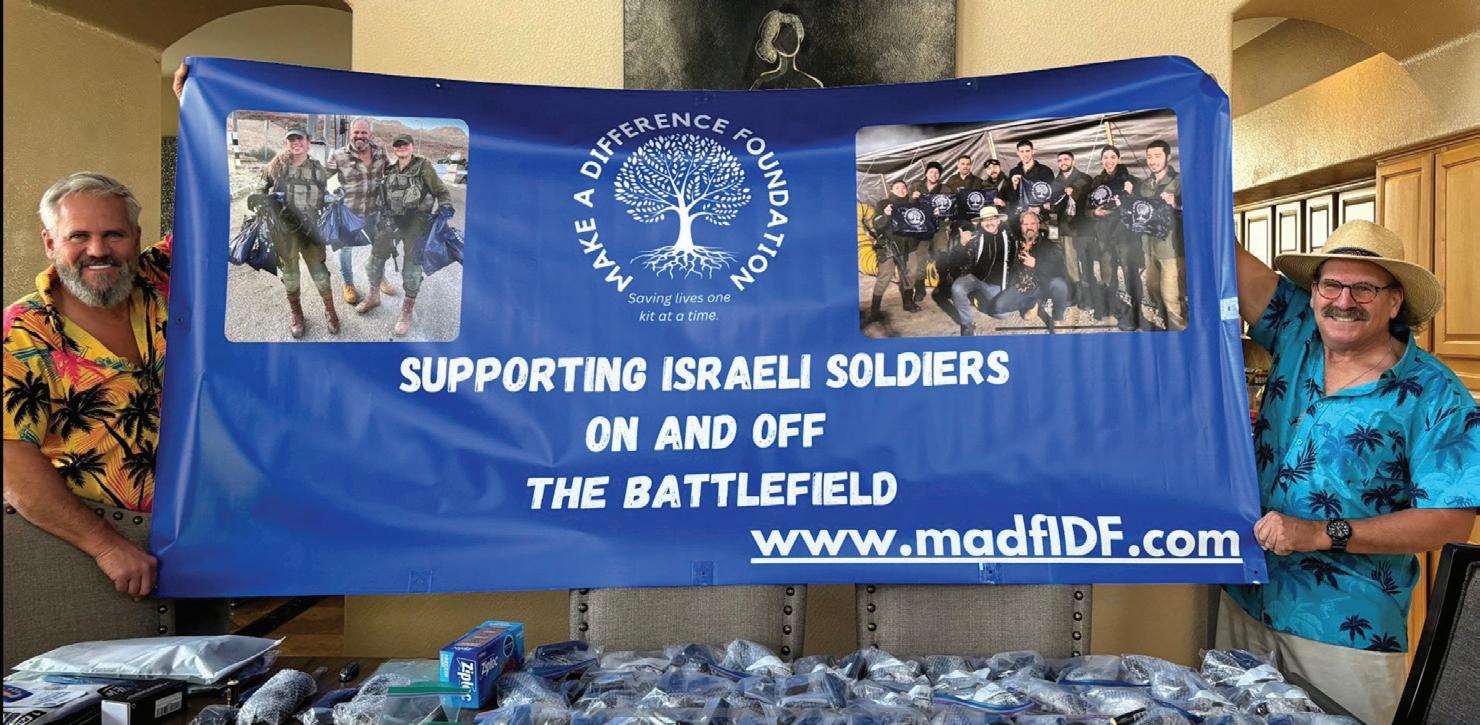
another flight.
Shuster arrived in Israel with 10 suitcases full of supplies and drove directly to the front lines to deliver the materials into the soldiers’ hands.
“These big organizations are doing a wonderful job, but they are not as fast moving as a small organization. Soldiers didn’t have tourniquets on the front line the second week of the war,” he said. “We just got in the car and we hand-delivered things to people on the front line and bombs were going off next to us. People cried when we gave them these medical supplies.”
He said they had to go through five or
six checkpoints to get where they needed to go. “I know the language; we’re not there to play around and they understood that we’re there to help.”
Shuster delivered supplies near the Golan Heights, 50 yards from the Syrian and Lebanese border, then he was contacted by a unit in the north that needed tourniquets, so he went there. During that trip, he gave out 176 medical kits.
On the second trip to Israel, Jensen accompanied Shuster. In addition to delivering supplies to the soldiers, they gave kits to those in the “civilian defense forces,” people who protect themselves SEE












JEWISHAZ.COM JEWISH NEWS APRIL 5, 2024 11 SPECIAL SECTION CHARITABLE GIVING
FRIENDS,
12
PAGE
WITH EQUIPMENT AND MEDICAL SUPPLIES.” AARON SHUSTER
FIND YOUR PERFECT MORTGAGE SOLUTION! Notre Dame FCU Offers: Conventional and Jumbo Loan Programs Fixed and Adjustable Rate Portfolio Loans Lot and Construction Loans High Yield Deposit products RANDY KAUFMAN NMLS ID #230394 RKaufman@NotreDameFCU.com 602-740-6678 Loan Subject to credit approval. Insured by NCUA. NMLS ID #405299. Corporations can also take the tax credit! Call 480.634.4926 for details The Jewish Tuition Organization (JTO) is a certified school tuition organization (STO). 480.634.4926 | JTOphoenix.org | info@JTOphoenix.org NOTICE: A school tuition organization cannot award, restrict or reserve scholarships solely on the basis of donor recommendation. A taxpayer may not claim a tax credit if the taxpayer agrees to swap donations with another taxpayer to benefit either taxpayer’s own dependent. Consult your tax advisor for specific tax advice. Provide scholarships by supporting the JTO through Arizona’s dollar-for-dollar private school tax credit Call TODAY or visit JTOphoenix.org TAKE THE CREDIT FOR JEWISH EDUCATION YEAR 2023 / individuals / married couples It’s not too late for tax year 2023! Deadline April 15, 2024 or whenever you file your taxes, whichever comes first.
Bobby Jensen, left, and Aaron Shuster hold up a banner for their organization, Make a Difference Foundation.
American Jewish World Service to lay off 10% of staff and exit 3 countries where it has provided aid
The American Jewish World Service (AJWS), a prominent Jewish international aid group, is set to lay off around 10% of its staff of 120 after it said donors withdrew support from the group.
The organization also plans to withdraw from three of the 17 countries where it currently operates meaning that it will no longer fund causes or development work there.
The planning process for the layoffs began in May 2023 “in tandem with the reality of fewer resources,” a spokesperson for AJWS said. The staff has already learned that layoffs are coming, and those affected will be notified this week and can remain employed until the beginning of May.
The New York City-based nonprofit’s vice president for marketing and communications, Peter Taback, said the layoffs were a “painful decision.” The decision was part of a long-term strategic planning

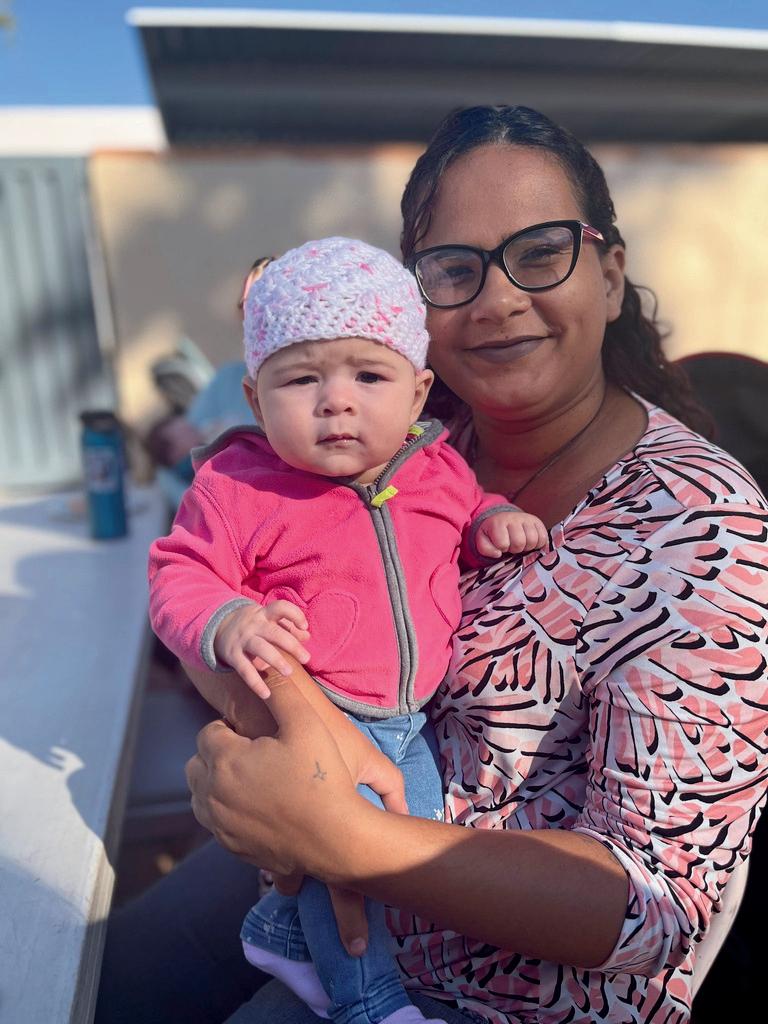
process, he said, and not reflective of a sudden shift.
“We are providing ample packages to staff” who are laid off, Taback told the New York Jewish Week. “We are providing professional support to help them land on their feet. We are engaged in a navigating-change program for the entire staff.”
The layoffs come at a time when Jewish foundations and donors have directed hundreds of millions of dollars in philanthropy to Israel in the wake of Hamas’ Oct. 7 attack and the ensuing war. While the trigger for AJWS’ layoffs came months before October, they are occurring at a time when Jewish organizations that do not focus on Israel or antisemitism, including global justice groups like AJWS, have expressed anxiety that their revenues may fall as donor energy centers on the war.
AJWS — which says it is “inspired by the Jewish commitment to justice”
and funds nonprofits advancing human rights and fighting poverty across several continents — has maintained its focus on those issues since Oct. 7. In a statement following Oct. 7, AJWS president and CEO Robert Bank said the group “remains dedicated to advancing our work in 17 countries across Asia, Africa, Latin America & the Caribbean.”
AJWS had an operating budget of some $44 million in 2022 and declined to say which donors had pulled funding. But the Kendeda Fund, a foundation that began funding AJWS in 2013, closed at the end of last year, after it spent down its resources. Kendeda had first funded AJWS efforts to combat child marriage and in 2022, it donated $4.8 million to the group. The foundation’s former leadership could not be reached for comment.
In addition to the layoffs, AJWS will also cut back on its activities abroad by leaving some countries and diverting those resources to others. The group
said it would remain in 14 countries, as opposed to the 17 where it currently operates, without naming which ones it would exit. In the countries that AJWS is leaving, the group will help its local partners transition, Taback said.
In 2022, the most recent year for which tax documents are available, AJWS received nearly $42 million in grants and had $81 million in assets. The group spent $14.5 million that year on salaries and employee benefits.
The group paid out nearly $20 million in grants in 2022, its lead expense. AJWS says it advances causes including disaster relief, sexual health, land rights and ending child marriage by supporting grassroots and human rights organizations in the countries where it operates. Founded nearly four decades ago, the group says it supports over 500 organizations and has paid out more than $500 million in grants. JN

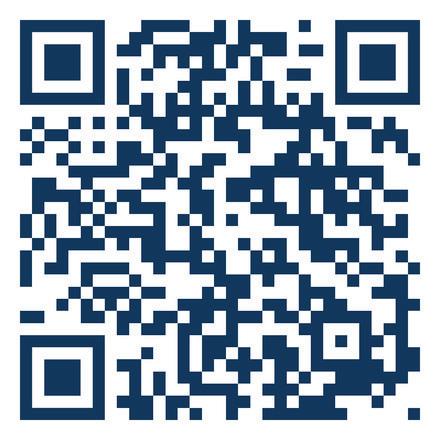
and their neighbors living in a kibbutz or moshav. They also wanted to prepare hot meals for the Golani Brigade, a unit that Shuster met on his first trip. “We started cooking at 4 p.m., and the meal was ready at 6 p.m., and these guys didn’t show up till 11:30 p.m. because they were being fired upon by Hezbollah and they couldn’t get to us,” he said. “In the meantime, six other units came through the military base where we were and ate the food that we had prepared for these other people. We served 450 meals in one night.”
“There was a woman that got out of
a tank and said she hadn’t eaten a hot meal in three weeks,” said Jensen. “They could not believe we traveled 9,000 miles to put this hot meal on for them. It was incredible.”
Currently, they are supporting five elite units in the IDF whose commanders let them know their needs. “They may need long underwear, headlamps and tourniquets. When we show up, these kits are designed exactly for them. And when we come, they’re elated,” he said.
Make a Difference Foundation has 20 volunteers in Israel and 20 in Arizona; 98% of the donations it receives go directly back into what’s needed for the soldiers. In addition to donating to the foundation, Jensen’s adult children have funded their trips to Israel.
Jensen moved to Arizona more than 30 years ago and met Shuster 15 years ago through a networking group and then went on to become backpacking and camping buddies. Now they are business partners.
“Every day, before I go to bed, I say, ‘Did I do what I could today?’” said Jensen. “We want to bring awareness and we want to help any way we can. We’re a small voice but I believe you have to start somewhere.” JN
For more information, visit makeadifferencefoundation.org.
12 APRIL 5, 2024 JEWISH NEWS JEWISHAZ.COM SPECIAL SECTION CHARITABLE GIVING
LUKE TRESS | JTA
FRIENDS CONTINUED FROM PAGE 11 Maggie’s Place provides safe housing and a nurturing community for pregnant and parenting women homelessnessexperiencing QCO Code: 20492 EIN: 86-0972675 www.maggiesplace.org/az-tax-credit Make your tax deductible donation now With the Arizona Charitable Tax Credit you can help empower women and break the cycle of homelessness through parenting, workforce development, and life skills education. Trust & Estate Taxes Advice & Planning US Taxes for Canadians FIRPTA Tax 480-423-1888 duane@ewcpa.com www.ewcpa.com Certified Public Accountants ECKELBERG WIENSHIENK, P C Duane Eckelberg, CPA Phoenix, Arizona
‘Fierce’ Phoenix senior challenges others to be brave and embrace awe
SHANNON LEVITT | STAFF WRITER
Last fall, Susan Brooks and her husband took a trip to Asheville, North Carolina, a locale known for having some of the most dramatic displays of fall foliage in the country. After living in Arizona for the past 40 years with its desert palette, the beautiful colors of the forest trees overwhelmed her and left her awestruck.
“We would turn a corner and see colors, panoramas and the most beautiful red trees; I just lost my voice screaming with joy from the awe of it all,” she told Jewish News.
Awe is something Brooks thinks every person deserves to have, especially people who are entering their own autumn season. Thus, she is offering “Moving Forward Into Awe,” a series of classes in Scottsdale with Jewish Family & Children’s Service’s Center for Senior Enrichment & Creative Aging (CSE CA)
April 4-May 9.
This series comes on the heels of her last set of classes focused on retired
people looking to “rewire” their habits, something Brooks has personal experience with.
The 77-year-old former high school English teacher ran a successful company, Cookies from Home, with her husband for 30 years before selling it in 2010. However, she didn’t exactly hang up her hat and retire. In the months following the sale, Brooks saw Jane Fonda’s Ted Talk about changing the face of aging.
“Jane used a staircase as a metaphor for aging, saying that we’re stepping up into wisdom. I was inspired and loved the possibilities opening up for older people,” Brooks said.
Brooks is also a public speaker and a business coach for female entrepreneurs trying to grow their business. After having experienced a number of difficult transitions, including becoming an entrepreneur, she enjoys sharing her perspective with people, she said.
She is also interested in learning from others which is how she met Jennifer
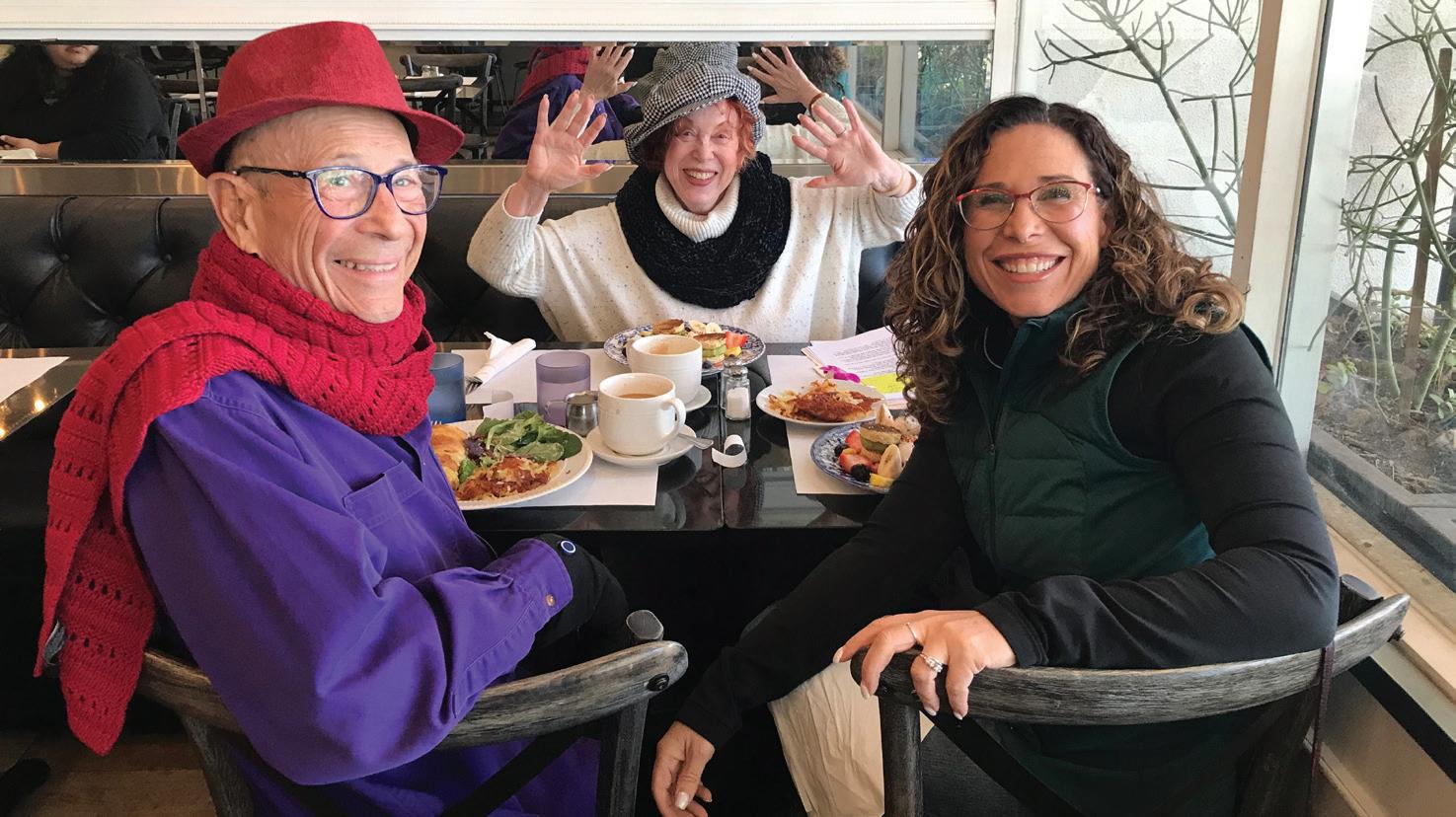
Brauner, director of CSE CA. After meeting in one of Brauner’s programs, the two struck up a conversation and brainstormed some ideas for a new series. This is the first year Brooks has built a class around her ideas.
“Susan is a very poised woman with great self-confidence and a vibrancy about her that is almost electric,” Brauner told Jewish News. “She just gives off this spark that is so inviting, and it’s easy to see why









JEWISHAZ.COM JEWISH NEWS APRIL 5, 2024 13 SPECIAL SECTION SENIOR LIFESTYLE
COURTESY OF SUSAN
SEE FIERCE, PAGE 14 LaSienaSeniorLiving.com 602.635.2602 VIBRANT RETIREMENT LIVING AN SRG COMMUNITY Find out at La Siena a vibrant senior living community designed and curated for unique adventures, endless opportunities, and vivid experiences.
the
next chapter can hold. HOW’S YOUR APPETITE FOR ADVENTURE?
Barry and Susan Brooks are pictured celebrating their daughter, Rachel’s, 50th birthday.
BROOKS
Take
first step in imagining everything your


she is such a strong business leader; she’s fierce.”
After her years in a high school classroom, creating a curriculum wasn’t too difficult. The first course was mostly filled with longtime retirees interested in creating a new style and a new identity for themselves.
“My class helped fill in the blanks for them,” Brooks said. Transitions are uncomfortable for most people and Brooks used the time with her students to show them there is “a whole new chapter for us Boomers that gives us more opportunities for living a robust life and putting our lifelong accumulated wisdom to good use.”
The intimate class allowed attendees “to come together in a vulnerable state and talk about the uncomfortable feelings they had trying to find a new purpose in their lives in retirement, even those who had been retired for a long time,” Brauner said. Brooks reassured her students they still have something to offer and a way to use their talents.
In this new series, she will challenge the attendees to think about the times in their lives when they experienced awe and capture those remembered feelings to build their curiosity muscles, she said.
“Awe is visceral, inspiring; it’s our fuel. We all experience fear, especially at this age, and that can keep us stuck. When we avoid things out of fear, that makes us old,” she said.
She likes to ask her students a signature question: “What would you do today if you were brave?”
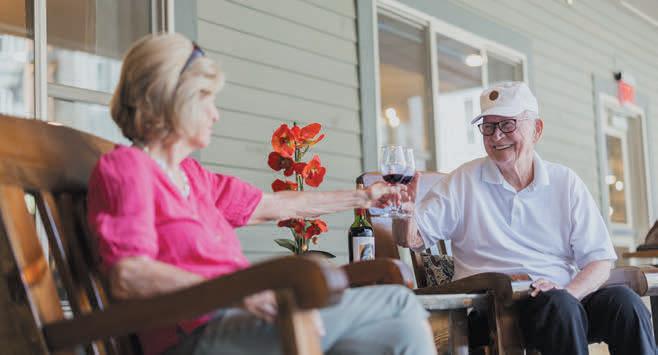
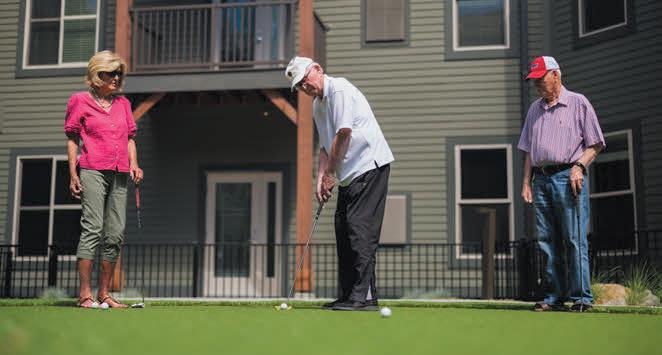

Brooks will devote each session to bringing awe into her students’ lives by giving them permission to have new experiences, even something as simple as wearing a new color.
In the last series, she created a “closet audit” to show people it’s OK to get rid of the things that are no longer “authentically you,” she said. People who have worn business clothes for so many years forget that wearing florals and bright colors is acceptable. In the final class, she asked people to come in the clothes that helped them claim their new identity.
“I’d love to do a fashion show for people in their 70s and 80s who have thrown out their business suits and are now all about wearing vibrant colors,” she said.
Brooks has spent the past couple of

years being brave herself. After Barry, her husband, received a diagnosis of pancreatic cancer, they both were looking at an uncertain future. Their two children asked them to move to Scottsdale, where they would be closer to them and to the hospital where he was treated. It was the most difficult period in their 57 years of marriage.
Happily, he is now cancer-free. The trip to North Carolina was “our reward for going through two of the worst years of our life,” she said. Now, she gets to enjoy hearing him regale her with stories of the Zumba classes he’s recently begun teaching again.
“When I met him at 18, he was a great kisser (still is!) and a great dancer. The more he can dance, the happier he is,” she laughed.
The happy couple loves seeking out moments of awe. “It brings hope, life, a fresh, energetic experience, a sudden insight or discovery,” she said.
One thing her elderly grandmother told her before she passed away was that the hardest part of getting older is losing all your friends. Brooks knows how limited time is, so she counts it as precious.
“Awe is my juice and I want to help others feel that too. You just have to step into it,” she said. JN
For more information, visit JFCSClasses.org, email Jennifer Brauner at Jennifer.Brauner@ jfcsaz.org or call 480-670-8073.
“AWE IS VISCERAL, INSPIRING; IT’S OUR FUEL. WE ALL EXPERIENCE FEAR, ESPECIALLY AT THIS AGE, AND THAT CAN KEEP US STUCK. WHEN WE AVOID THINGS OUT OF FEAR, THAT MAKES US OLD.”
SUSAN BROOKS
14 APRIL 5, 2024 JEWISH NEWS JEWISHAZ.COM SPECIAL SECTION SENIOR LIFESTYLE
CONTINUED FROM PAGE 13
FIERCE
Eileen Landau, a senior influencer at 82 who offers make-up and skincare advice on Facebook and TikTok, is pictured in the center of the photo. Landau took Susan Brooks’ class “Retired? Get Rewired!” and helped her classmates do a closet audit by adding glitter and color to their new styles.
COURTESY OF SUSAN BROOKS



JEWISHAZ.COM JEWISH NEWS APRIL 5, 2024 15 AndaraSL.com


Scottsdale couple dedicated their life to music
MALA BLOMQUIST | MANAGING EDITOR
The late Lee Berk, who passed away unexpectedly on Oct. 21, 2023, dedicated his entire career to music and music education. Wherever he and his wife, Susan, settled — Boston, New Mexico or Scottsdale — they “took the music with them.”
In February, there was a special performance by the Emmet Cohen Trio, featuring Benny Benack III on trumpet, at Sagewood, a Scottsdale senior living community where the Berks moved in 2011. The Berks had initially met Emmet Cohen on a cruise, where he was an entertainer, and they all became close friends. He had performed at Sagewood several times before and Lee Berk had selected the trio to commemorate Oasis’ 100th live concert, not realizing it would end up being a performance honoring his life and legacy.
Susan Berk said her husband would have enjoyed the show.
“It was a wonderful concert and Emmet smiles the whole time he’s playing. He’s so happy and he generates and communicates the joy of music and that’s what Lee was all about — the joy of music,” she said.
Lee’s father, Lawrence Berk, founded Schillinger House in Boston, the first college-level school in the United States where jazz was the basis of the curriculum. In 1954, Lawrence Berk renamed the school after his son, Lee, who went on to succeed his father as the school’s president serving from 19792004. Today, Berklee College of Music is the world’s largest independent college of contemporary music.
When the Berks moved to Arizona from New Mexico in 2011, they wanted to be close to the Mayo Clinic Hospital in Phoenix, so they moved into Sagewood, down the street on Mayo Boulevard. They also became members of The New Shul in Scottsdale.
But what do you do when your whole life is music, and you get to a new place and want to keep the music going?


part after a local owl and the late Woody Herman, jazz clarinetist, saxophonist, singer and big-band leader.
When they first brought musicians to Sagewood, more than a decade ago, they would set up a portable stage in the aerobics room. In January 2018, the 18,500-square-foot Oasis multi-purpose events center opened, and they were able to offer musicians a venue with a capacity to seat hundreds, a state-of-the-art audiovisual system and a grand piano on stage.
Nowadays, to find performers, Berk and O’Sullivan attend live music three or four times a week at venues across Greater Phoenix, including The Nash Jazz Club, Ravenscroft, Mesa Arts Center, Scottsdale Center for the Performing Arts and The Musical Instrument Museum, where Berk volunteers three days a week.
“When we arrived at Sagewood, we met Mr. (Martin) O’Sullivan, and he had a passion and love for music, so the three of us said, let’s start presenting music,” said Susan Berk. In New Mexico, the Berk’s passion was to present jazz, so they started a nonprofit called the Friends of Santa Fe Jazz.
At Sagewood, the Berks and O’Sullivan created Woody’s Place Presents, named in
Initially, the performances centered around jazz but after receiving feedback from Sagewood residents, they considered bringing in other genres.
“We listened to our residents, and they said, ‘We love classical music.’ That was three years ago, and we started the classical music series,” said Berk. “Now they are saying, ‘I love country, Broadway, opera, Motown.’ So, I’m working on
16 APRIL 5, 2024 JEWISH NEWS JEWISHAZ.COM SPECIAL SECTION SENIOR LIFESTYLE
Lee and Susan Berk with Israeli pianist Yoav, center, at the Oasis in 2022. COURTESY OF SUSAN BERK
SENIOR LIFESTYLE
the 2025 season and introducing other genres.”
Berk works with a team of resident volunteers that help with everything from ushering to coordinating lodging for musicians who are not local.
She said that the residents appreciate the performances and the sense of community it creates. “Music brings people together. It’s a shared enjoyable experience,” she said. “I think music relaxes, music heals and music brings joy.”
Berk shared that one of her husband’s favorite bands was the Swedish pop group ABBA. She said they saw the movie “Mamma Mia!” several times and visited ABBA The Museum in Stockholm when they were traveling in Sweden.
“Benny Andersson was a pianist with ABBA, and every morning we would
ask Alexa to play the music of Benny Andersson and one of the songs that stuck with us is ‘Thank You for the Music,’” said Berk.
“We’re very grateful for the music because, of course, it was Lee’s career. It was his profession at Berklee College of Music, and we’re thankful for the livelihood and for the relationships we had with all the wonderful musicians who came across our path.”
Since music was always present in their lives wherever they went, when they moved to Santa Fe, which is such a large arts community, people often asked, “What do you collect?”
She joked that their response would be, “We don’t collect paintings, glass art or objects. We collect people and experiences.” JN

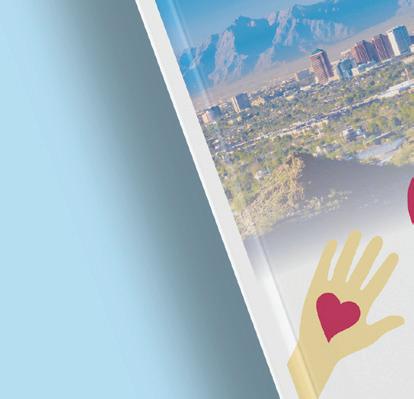




BE A PART OF OUR UPCOMING
GIVING GUIDE
JUNE 14TH

“I THINK MUSIC RELAXES, MUSIC HEALS AND MUSIC BRINGS JOY.”


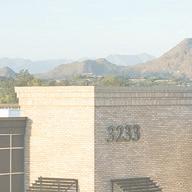
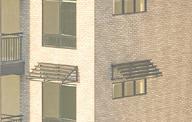
Let our philanthropic readers know about the important work your nonprofit agency or organization is doing in the Jewish community and beyond. Reserve your space today!
Carol Chandler 602-908-5743
cchandler@jewishaz.com
For additional information or to book your ad today contact: Jodi Lipson 602-639-5866 jlipson@jewishaz.com



scenery, rich residences – what more could you want out of luxury retirement living? Just you wait.
At Clarendale Arcadia, independent living residents find all these features – and even more sophisticated services – right outside their doors. The opportunity to retire in style has never been easier – or felt better – until now.


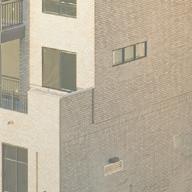
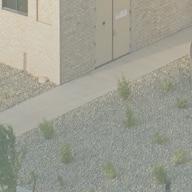
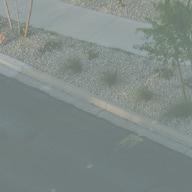


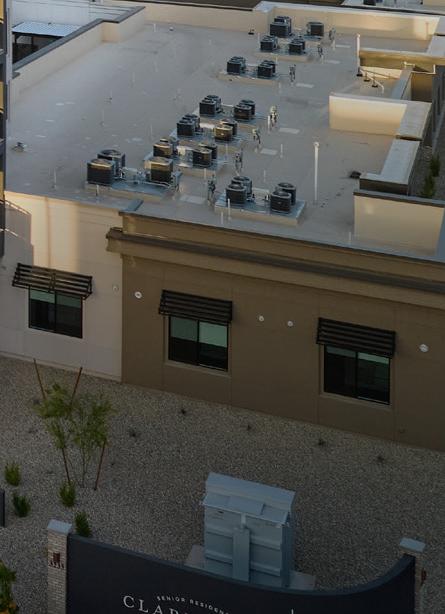

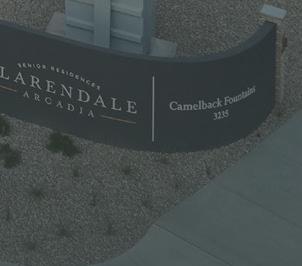
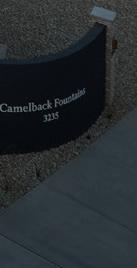
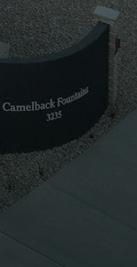



JEWISHAZ.COM JEWISH NEWS APRIL 5, 2024 17 SPECIAL SECTION
SUSAN BERK
Living
never looked so good. High-class
large
amenities, unmatched
INDEPENDENT LIVING ■ ASSISTED LIVING ■ MEMORY CARE 3233 East Camelback Road | Phoenix, AZ 85018 | ClarendaleArcadia.com OFFICE 480-608-9102 |
EXCITED TO LEARN MORE? SCHEDULE A PERSONAL TOUR TODAY BY CALLING 480-608-9102.

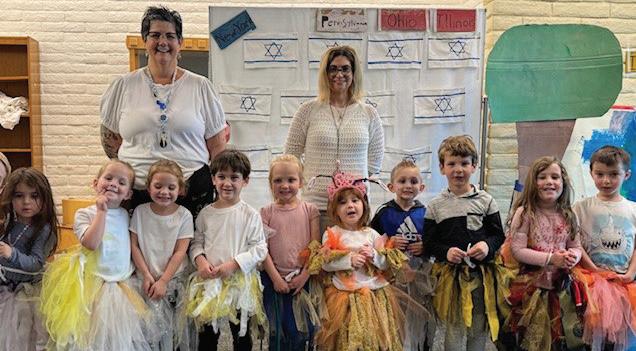
Angry little animals
“All the Animals were Angry” was adapted by Temple Chai’s Keshatot pre-K class and performed on Feb. 16. The idea to produce a play came from one of the pre-K students during a discussion about the events taking place in Israel, and how angry and sad the children were about it. The class had previously read a book titled “All the Animals Were Angry” and felt this book described their feelings perfectly.

Watery art
Scottsdale Jewish artist Elaine Fogel was one of 26 Arizona artists whose work was included for a month-long exhibit at the Herberger Art Galleries at the Herberger Theater Center. Her “Atlantic Outlook” was part of the water exhibit and it kicked off Phoenix Art Week. Fogel is pictured in front of her painting.

A big thank you!
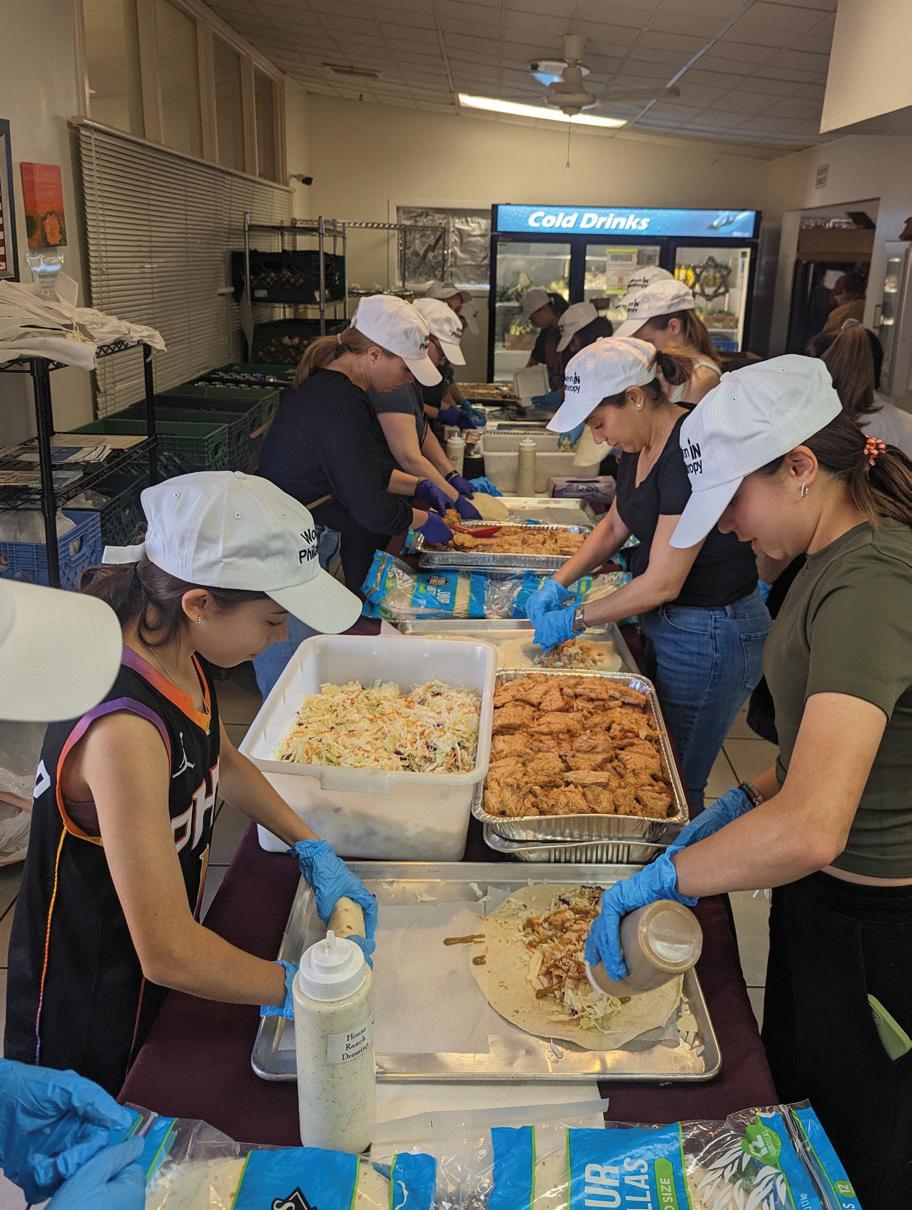
Fighting food insecurity together
Tikkun Olam Together at the AZ Kosher Food Pantry on March 10, saw many volunteers bring and prepare food for low income families.

COMMUNITY This COMMUNITY page features photos of community members around the Valley and the world. Submit photos and details each week to editor@jewishaz.com by 10 a.m. Monday.
COURTESY
CENTER
OF GREATER PHOENIX
ordable
Temple Solel Rabbi John Linder spoke at a Valley Interfaith Project press conference to advocate for affordable housing. COURTESY OF VALLEY INTERFAITH PROJECT
OF
FOR JEWISH PHILANTHROPY
A
housing needed
COURTESY OF
CHAI
TEMPLE
COURTESY OF ELAINE FOGEL
OF ARIZONA JEWS FOR JUSTICE 18 APRIL 5, 2024 JEWISH NEWS JEWISHAZ.COM
Eddie Chavez Calderon, left, and Rabbi Dr. Shmuly Yanklowitz, right, present Gary Friedlander, center, with a justice award on March 11, following the public lecture of author Dr. Dara Horn. COURTESY
Featured Event
FRIDAY-SUNDAY, APRIL 12-14 & 19-21
'The Diary of Anne Frank:
7 p.m. Fri.-Sat., 2 p.m. Sun. Paradise Valley Community College Center for the Performing Arts, 18401 N. 32nd St., Phoenix. Join PVCC Fine Arts for a production based upon “Anne Frank: the Diary of a Young Girl,” newly adapted by Wendy Kesselman. Cost: $8-$15. For more information, visit paradisevalley.edu/center-performing-arts.
Events
FRIDAY-SUNDAY, APRIL 5-7
Shabbaton: Times vary. Jewish Community of Sedona and the Verde Valley Synagogue, 100 Meadow Lark Drive, Sedona. Join JCSVV for a weekend of study, story and song. Cost: $36 for the entire weekend of activities. For more information, visit jcsvv.org.
SATURDAY, APRIL 6
“A Chorus Line:” 7 p.m. Sun Lakes Chapel, 9240 E. Sun Lakes Blvd. N., Sun Lakes. Join Sun Lakes Jewish Congregation for a parody where instead of performers auditioning for a musical show, ingredients will audition for the opening of a new delicatessen. Cost: $18 in advance, $20 at the door. For more information, contact 480-584-5909.
SUNDAY, APRIL 7
Israeli Film Series: All day. Online. Join the East Valley Jewish Community Center for a screening of “Closed Circuit,” a documentary about the terrorist attack at Sarona Market in Tel Aviv. Cost: Free. For more information, visit evjcc.org/film.
Gesher Model Seder: 9:30 a.m.-1:30 p.m. Ina Levine Jewish Community Campus, 12701 N. Scottsdale Road, Scottsdale. Join Gesher Disability Resources for their annual Seder for individuals with special needs. To RSVP and for more information, contact stacyr@gesherdr.org.
Alcohol Ink Seder Plate Workshop: 11 a.m. Chabad of Mesa, 941 S. Maple, Mesa. Join Chabad of Mesa’s Jewish Women’s Circle to create a Seder plate. Cost: $16. For more information, visit chabadmesa.com/JWC.
Hot Dog Day: 12-2:30 p.m. Beth Emeth Congregation of the West Valley, 13702 W. Meeker Blvd., Sun City. Join Beth Emeth Men’s Club for a kosher hot dog, chips and soda for $5. For more information, visit bethemethaz.org.
Pre-Pesach Women’s Event: Freedom
Unlocked: 7:30 p.m. Chabad of Phoenix, 2110 E. Lincoln Drive, Phoenix. Join Chabad of Phoenix for a presentation on navigating mental health by Rivkah Leah Gelb and resin tambourine decorating. Cost: $36. For more information, visit chabadaz.com/freedom.
TUESDAY, APRIL 9
NowGen Together for Israel Dinner: 7-8:30 p.m. Location provided upon registration. Join NowGen for an evening of food, inspiration and meaningful conversation for adults in their 20s, 30s and early 40s. $25. For more information, visit phoenixcjp.regfox.com/ nowgen-togther-for-israel-1001-7.
WEDNESDAY, APRIL 10
Game Day: 10 a.m.
Grandview Terrace, 14515 W. Granite Valley Drive, Sun City West. Join Hadassah Tikvah West Valley Chapter for a morning of playing different games. Cost: $36, includes lunch. For more information, contact Lael Summer at laelgs@gmail.com.
Kosher Food Truck: 12-2 p.m. Parked at 6516 N. Seventh St., Phoenix. Join Arizona Kosher Pantry and Ezras Cholim’s kosher food truck for lunch. All proceeds support the work the two organizations are doing to support the community dealing with food insecurity. For more information, visit azkosherpantry.org.
WEDNESDAY, APRIL 11
JNF-USA Women for Israel Luncheon and Dinner: 11 a.m. or 9 p.m. Location provided upon registration. Join Jewish National FundUSA for an event that honors the women of Israel with guest speaker Michael Uziyahu, director of development, Jewish National Fund Israel. For more information, visit events.jnf.org/e/dswomenforisrael.
SUNDAY, APRIL 14
Model Matzah Bakery for Kids: 10:30 a.m. Chabad Edelman Jewish Center, 16830 E. Avenue of the Fountains, Fountain Hills. Join Chabad of Fountain Hills for a matzahmaking workshop for kids and teens. For more information, contact 480-795-6292 or office@jewishfountainhills.com.
JWV 30th Anniversary Luncheon: 11:30 a.m.
Oakwood Country Club, 24218 S. Oakwood Blvd., Sun Lakes. Join Jewish War Veterans Copper State Post 619 for a luncheon instilling its new officers and honoring others. Cost: $35; responses due by April 7. For more information, contact 480-629-5100.
Exclusive Briefing with Keynote Speaker Izzy Ezagui: 3-4:30 p.m. Location provided upon registration. Join Israel Bonds and Temple Kol Ami for a presentation from Izzy Ezagui, a one-armed IDF sharpshooter who recently returned from a tour of duty in Gaza. For more information, visit lp.constantcontactpages.com/ev/reg/hethtfg.
PJ Library Book Mitzvah Party: 3-5 p.m. Ina Levine Jewish Community Campus, 12701 N. Scottsdale Road, Scottsdale. Join PJ Library as it celebrates its 13th birthday with a live DJ, ice cream bar, face painting, photo booth, activities and more. Cost: $36 per family. For more information, visit phoenixcjp.regfox.com/ pj-library-book-mitzvah.
Jewish Women’s Conservative Forum Event: 5-8 p.m. Maggiano’s Little Italy, 16405 N Scottsdale Road, Scottsdale. Join the Jewish Women’s Conservative Forum for an event featuring Kimberly Yee, Treasurer of the State of Arizona, as guest speaker. Cost: $55. For more information, contact lks19@cox.net.
MONDAY, APRIL 15
Women’s Passover Seder: 12-2 p.m. Temple
Beth Shalom of the West Valley, 12202 N. 101st Ave., Sun City. Join the Sisterhood of TBSWV for a Women’s Seder featuring a Haggadah created by Barbara Moss, wife of Rabbi Emeritus Sheldon Moss. Cost: $20 members, $22 nonmembers; registration closes April 10 at 12 p.m. For more information, contact 623-977-3240.
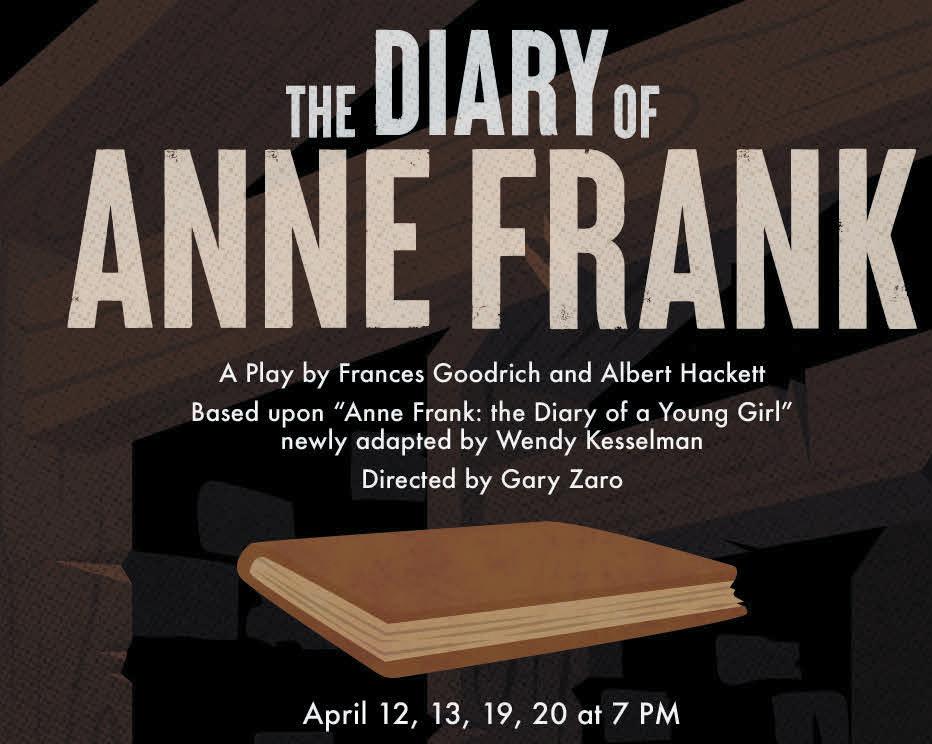
From Kishinev to Sderot: 7-8:30 p.m. Online via Zoom or in person at Ina Levine Jewish Community Campus, 12701 N. Scottsdale Road, Scottsdale. Join ASU Jewish Studies for the presentation by Professor Edward Westermann, “From Kishinev to Sderot: Considering ‘Spectacular Violence’ and Mass Murder against Jewish Communities.” Cost: Free. For more information, visit jewishstudies.asu.edu/jswestermann.
SUNDAYS
B.A.G.E.L.S: 9-11 a.m.; last Sunday of the month. Valley of the Sun Jewish Community Center, 12701 N. Scottsdale Road, Scottsdale. Grab a bagel and a cup of coffee at Bagels And Gabbing Every Last Sunday and enjoy some time with your friends and make new ones. You must register to attend. Bagels and coffee will be provided. Cost: Free for members, $5 for guests. For more information and to register, visit vosjcc.org.
THURSDAYS
Storytime at Modern Milk: 9:30 a.m. Modern Milk, 13802 N. Scottsdale Road, #163, Scottsdale. Storytime for babies, toddlers and preschoolers. Integrates children’s books and songs while giving parents new ideas for play. Cost: $5. For more information and to register, visit modernmilk.com/after-baby.
Meetings, Lectures & Classes
SUNDAYS
Chassidus Class: 9 a.m. Online. Learn about the Chasidic movement with Rabbi Yossi Friedman. Cost: Free. For more information, visit chabadaz.com.
Jewish War Veterans Post 210: 10 a.m. Online. Any active duty service member or veteran is welcome to join monthly meetings, every third Sunday. Cost: Free. For more information, email Michael Chambers at c365michael@yahoo.com.
Sundays are for the Family Weekly Feed: 3-5 p.m. Tempe Beach Park, 80 W. Rio Salado Pkwy., Tempe. Join Arizona Jews for Justice and AZ HUGS for the Houseless every Sunday to serve food to those in need. For more information and to RSVP, email Arizonajews4justice@gmail.com.
MONDAYS
Interfaith Antisemitism Course: 10-11 a.m. Temple Beth Shalom of the West Valley, 12202 N. 101st Ave., Sun City. TBSWV will present a fourpart interfaith series (April 1, 8, 15 and 22) looking at contemporary antisemitism and attempting to analyze its sources and likely results. Cost: $20 members; $35 nonmembers; registration deadline March 27. For more information, visit tbsaz.org.
Mahjong: 1:30-3:30 p.m. East Valley Jewish Community Center, 908 N. Alma School Road, Chandler. Come play mahjong each week. For all levels. Cost: Free; registration required at evjcc.org/mahjong/.
Single Parent Zoom: 8 p.m. First and third Monday of every month. Join The Bureau of Jewish Education’s Family University single parents’ group for those looking to form friendships and build their support system with like-minded people. For more information or to register, visit bjephoenix.org/family-university.
TUESDAYS
Let’s Knit: 1:30 p.m. Ina Levine Jewish Community Campus, 12701 N. Scottsdale Road, Scottsdale. Share the pleasure of knitting, crocheting, etc. outside the social hall in the campus. Can’t knit? They will teach you! Every level welcome. Cost: Free. For more information, visit vosjcc.org.
Maintaining an Upbeat Attitude: 7 p.m. Online. A class exclusively for people in their 20s and 30s, learn how Jewish Mysticism can help with your attitude with Rabbi Shlomy Levertov. Cost: Free. Use this link: JewishParadiseValley.com/YJPclass. For more information, visit chabadaz.com.
WEDNESDAYS
History of the Jews: 11 a.m. Online. Learn the Jewish journey from Genesis to Moshiach with Rabbi Ephraim Zimmerman. Cost: Free. Use this link: zoom.us/j/736434666. For more information, visit chabadaz.com.
Torah Study with Temple Beth Shalom of the West Valley: 11 a.m.-12:30 p.m. Online. Weekly study group explores that week’s portion and studies different perspectives and debates the merits of various arguments. Intended for adults, Torah study is open to students of all levels. For more information, contact the TBS office at 623-977-3240.
JACS: 7:30-8:30 p.m. Online. Zoom support group for Jewish alcoholics, addicts and their friends and family on the first and third Wednesdays of the month. Cost: Free. For more information, email jacsarizona@gmail.com or call 602-692-1004.
THURSDAYS Interfaith Course: 10-11 a.m. Temple Beth Shalom of the West Valley, 12202 N. 101st Ave., Sun City. TBSWV will present a four-part interfaith series (April 4, 11, 18 and 25) focusing on two perspectives of the Gospels: Christianity and Rabbinic Judaism. Cost: $20 members; $35 nonmembers; registration deadline April 2. For more information, visit tbsaz.org.
Weekly Mahjong: 1-3 p.m. Temple Solel, 6805 E. McDonald Drive, Paradise Valley. Join Temple Solel each Thursday afternoon for mahjong. Lessons available for beginners. Cost: Free. RSVP via email to dottiebefore@gmail.com so they know how many tables to set up.
SATURDAYS
Saturday Mindfulness Gatherings: 9:30 a.m. Online. Hosted by Hospice of the Valley. To join by phone, dial 1-253-215-8782, meeting ID 486 920 2119#. To get the Zoom link or for more information, contact Gill Hamilton at ghamilton@hov.org or 602-748-3692. JN
CALENDAR
JEWISHAZ.COM JEWISH NEWS APRIL 5, 2024 19
an updated listing of events and resources, visit JewishPhoenix.com.
For



Sunday,





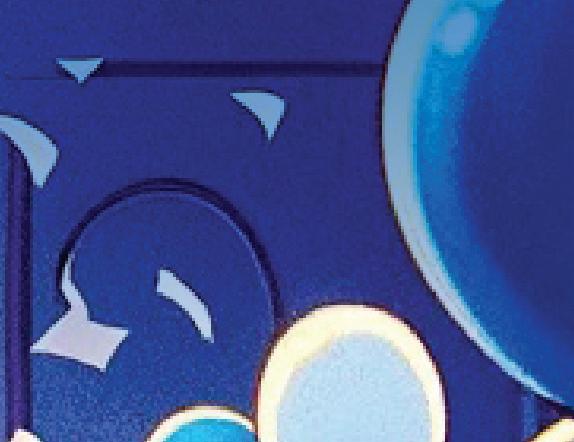



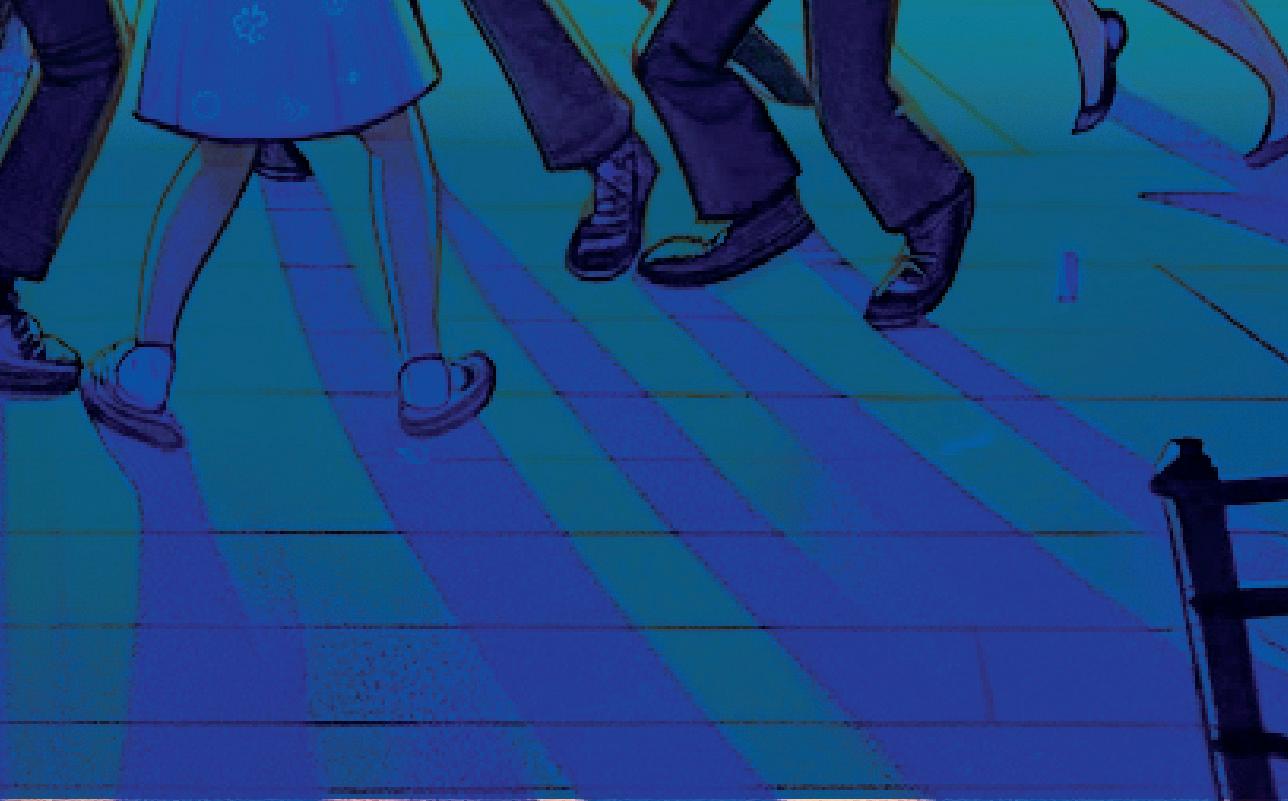
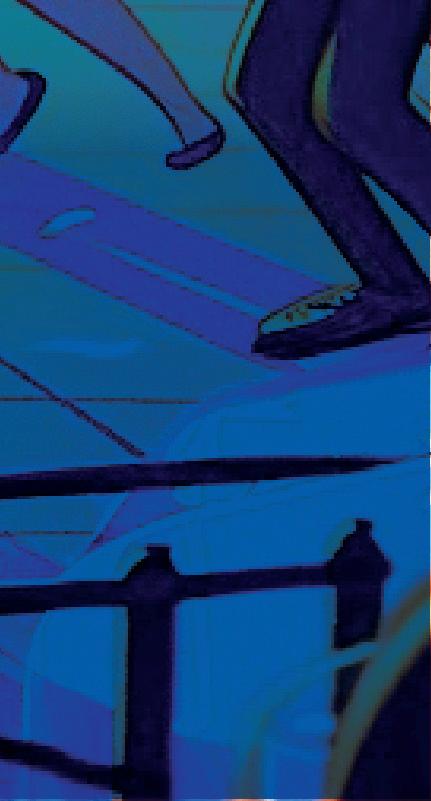

20 APRIL 5, 2024 JEWISH NEWS JEWISHAZ.COM
DJ | Ice Cream Bar | Face Painting | Photo Booth phoenixcjp.org/pjbookmitzvah
April 14, 3-5pm Ina Levine Jewish Community Campus Come celebrate with us! Birthday Book Mitzvah Bash Entertainment provided by





















































































































































































